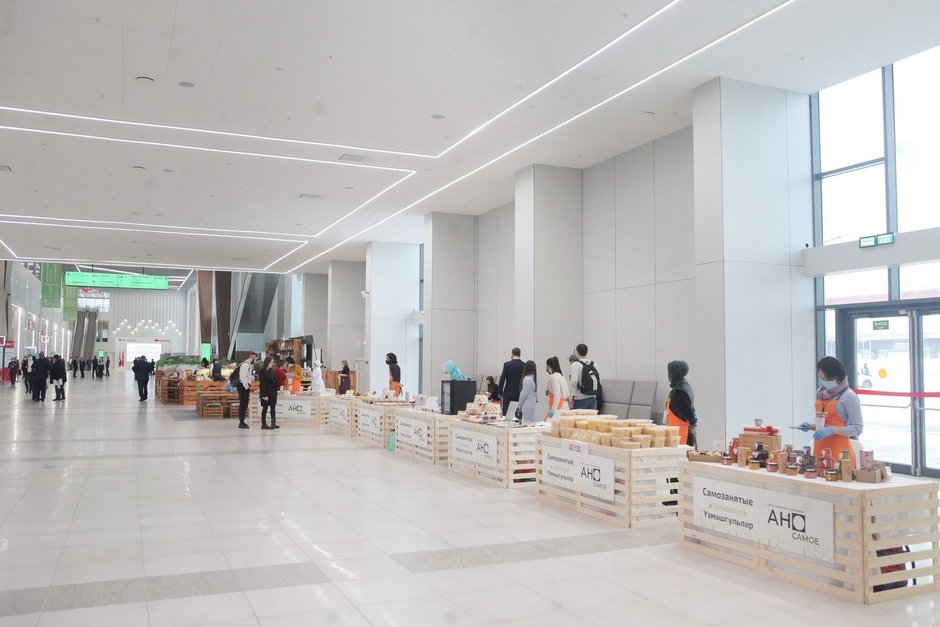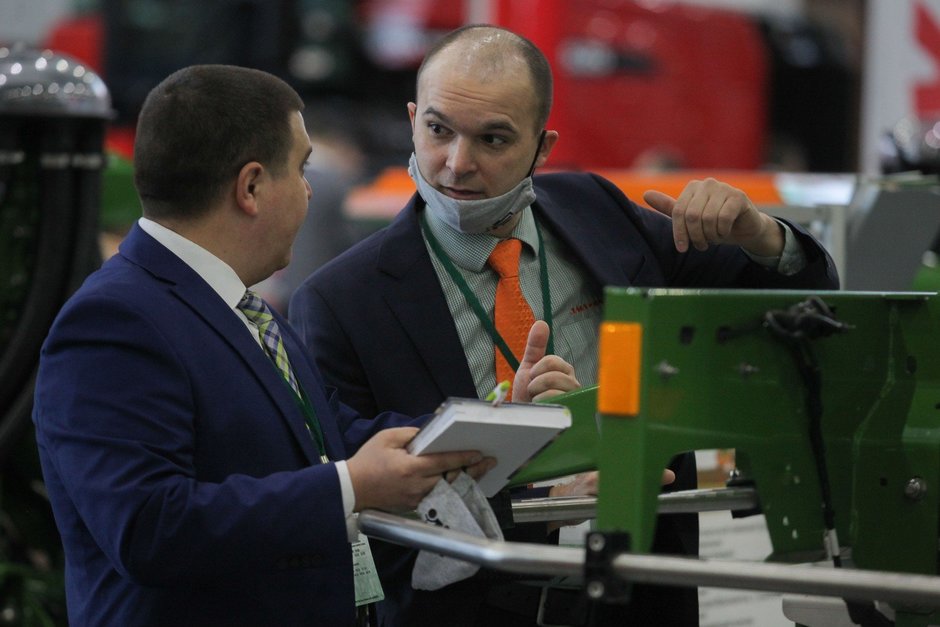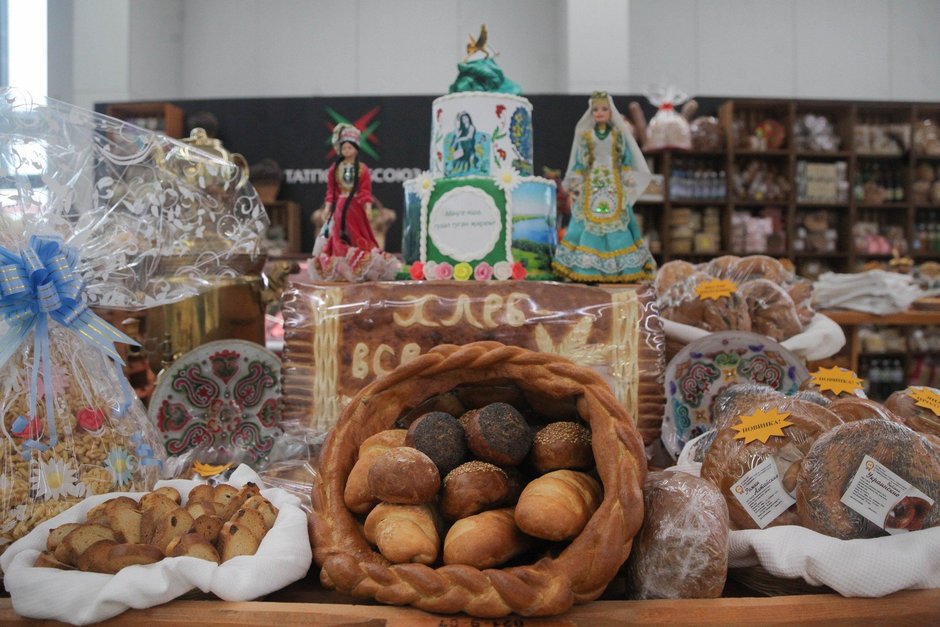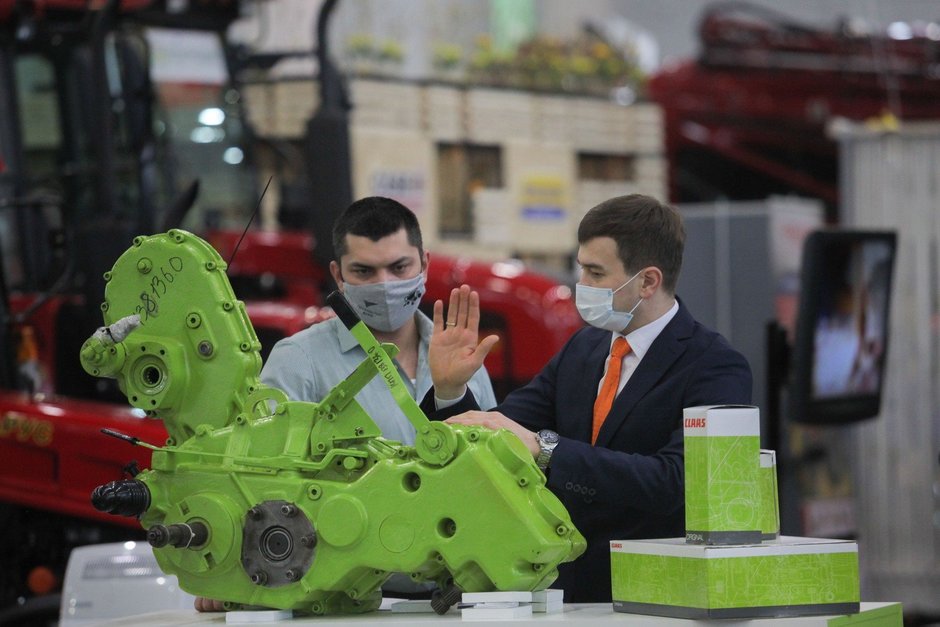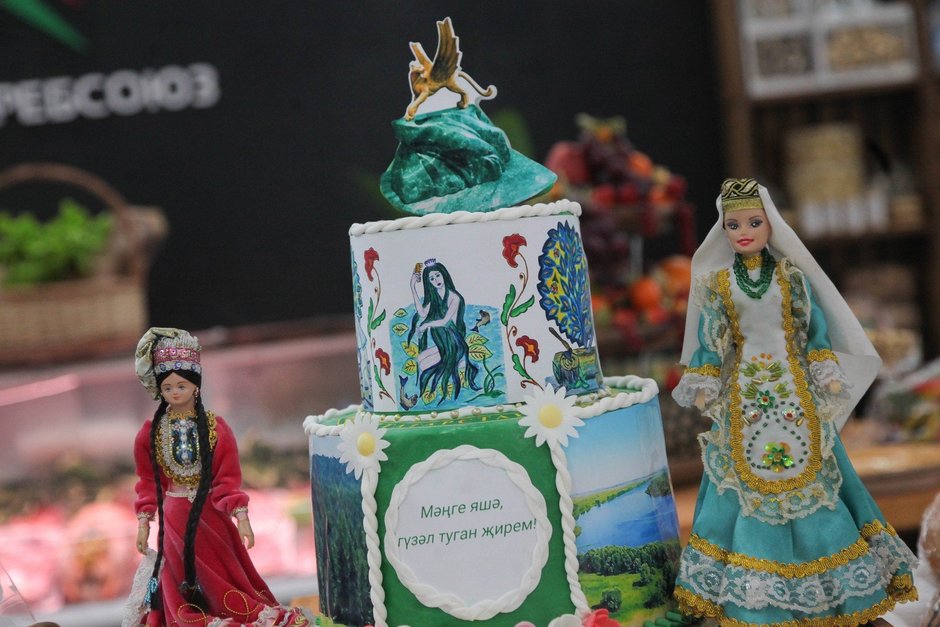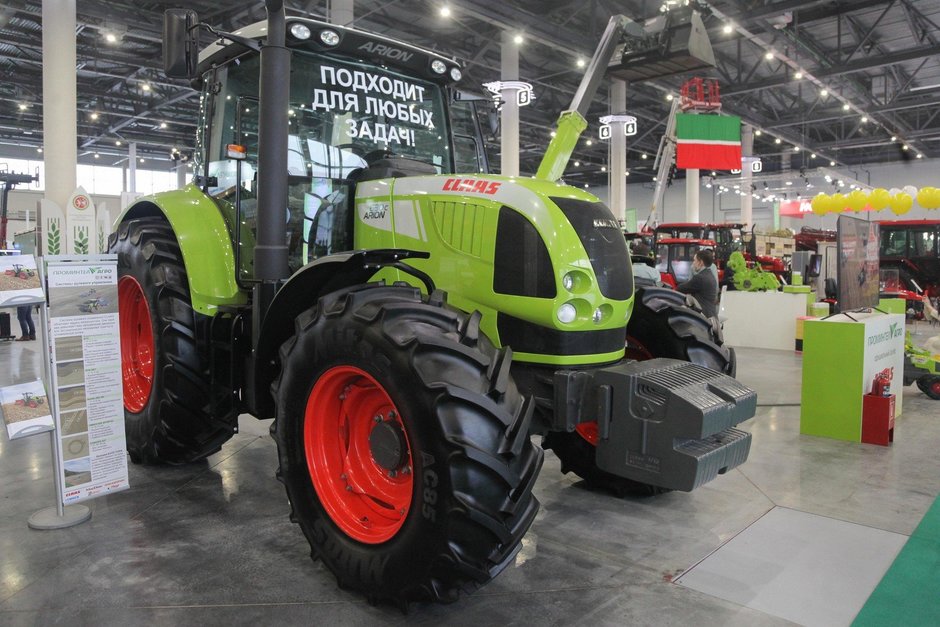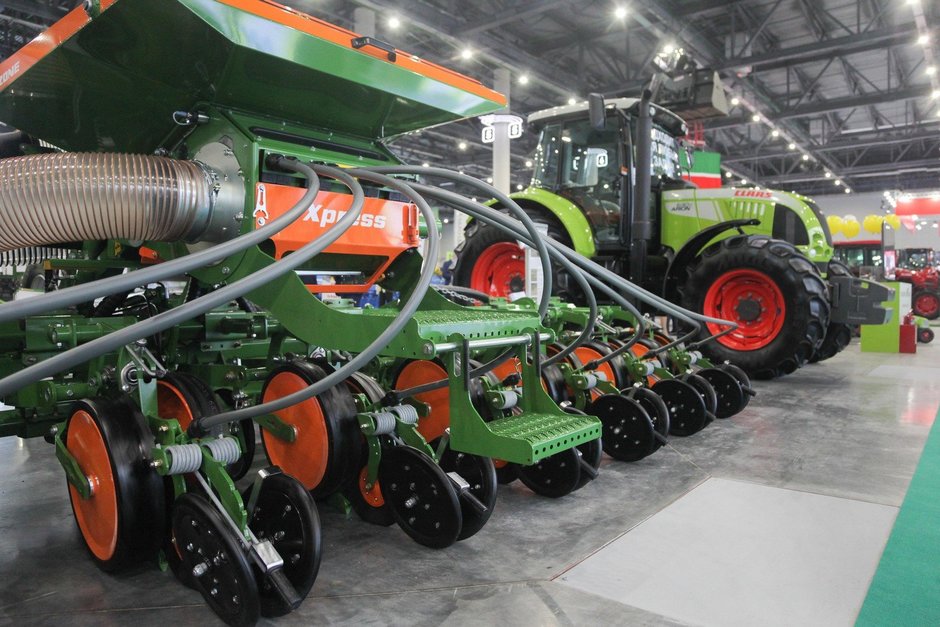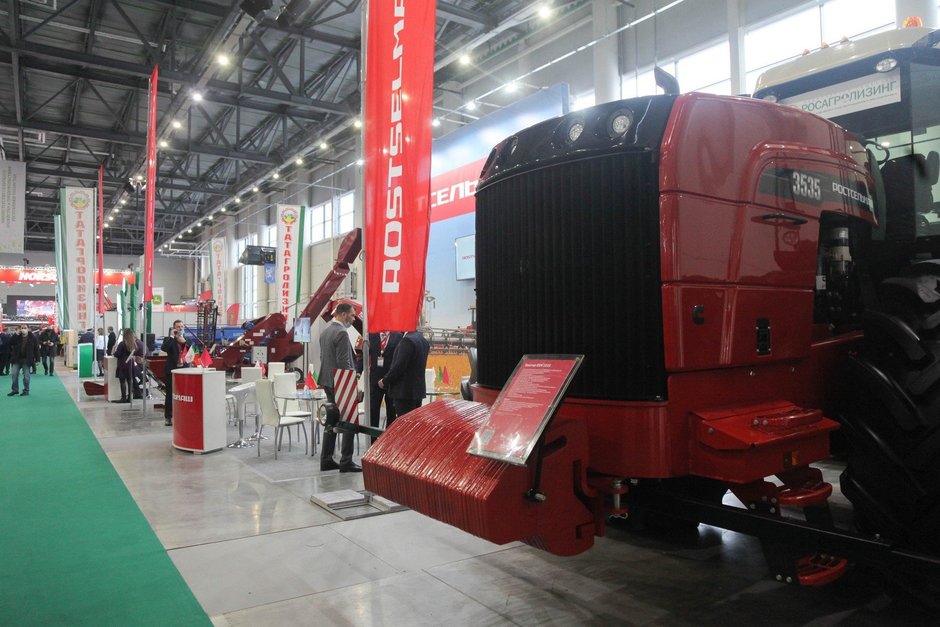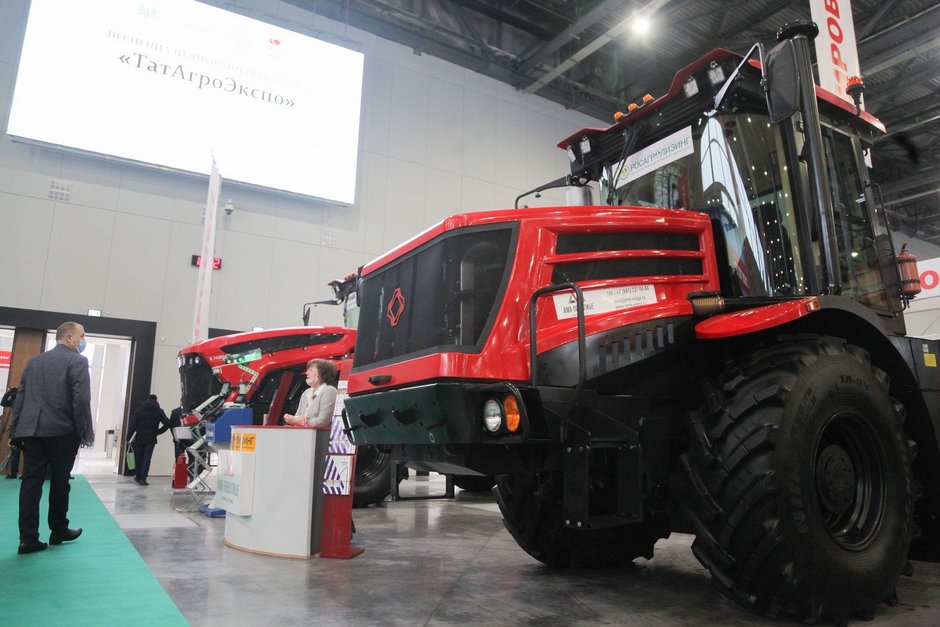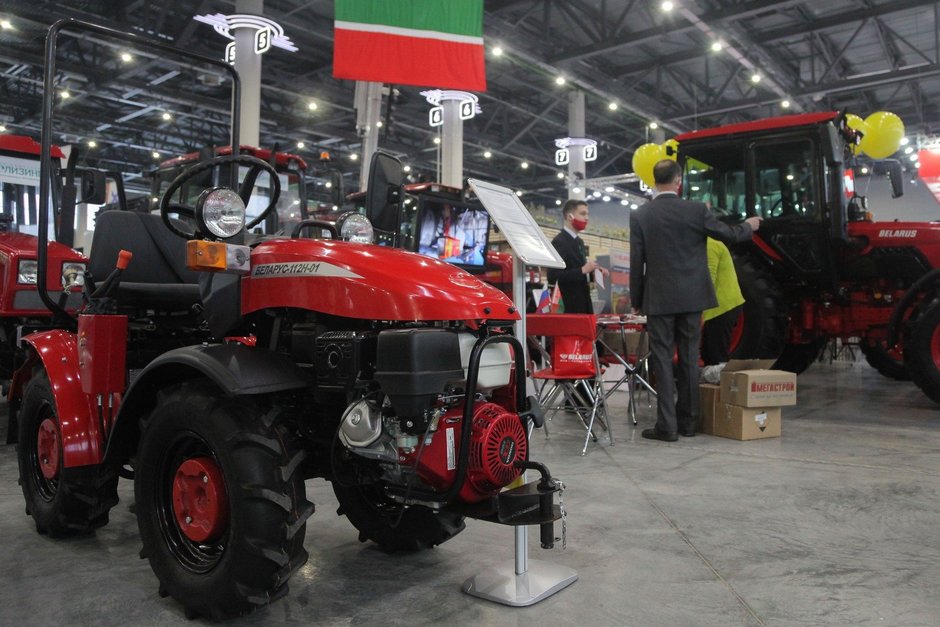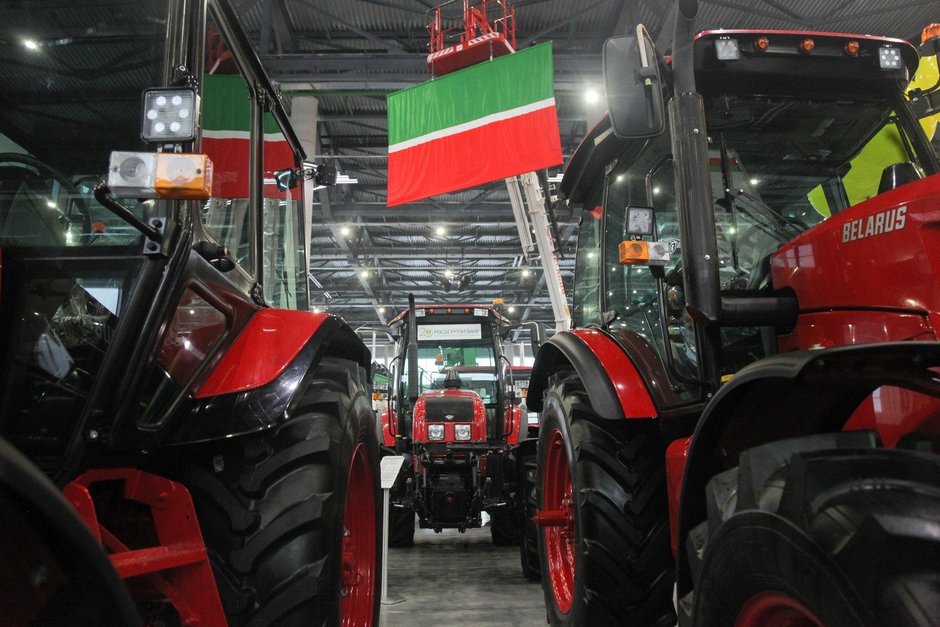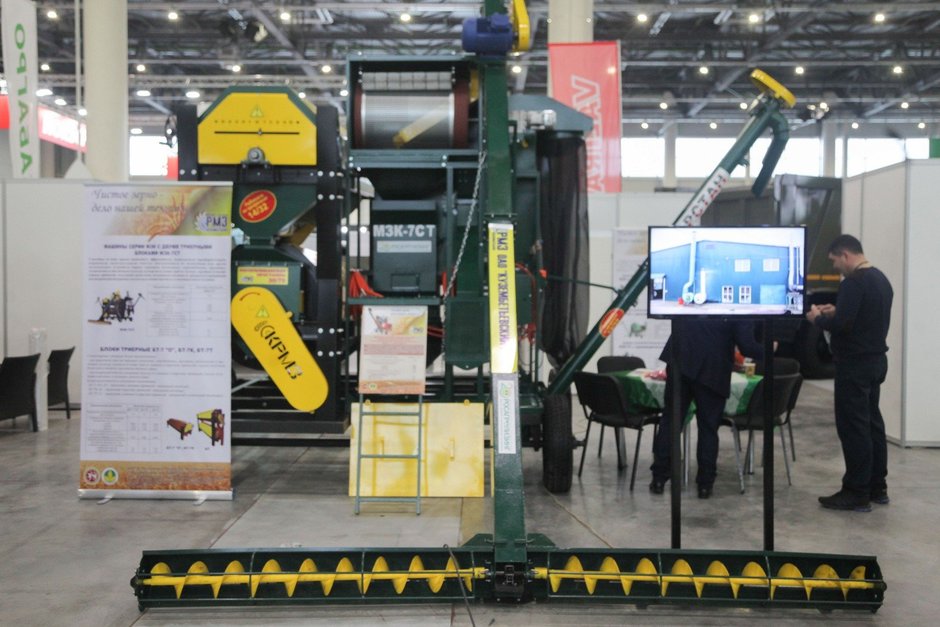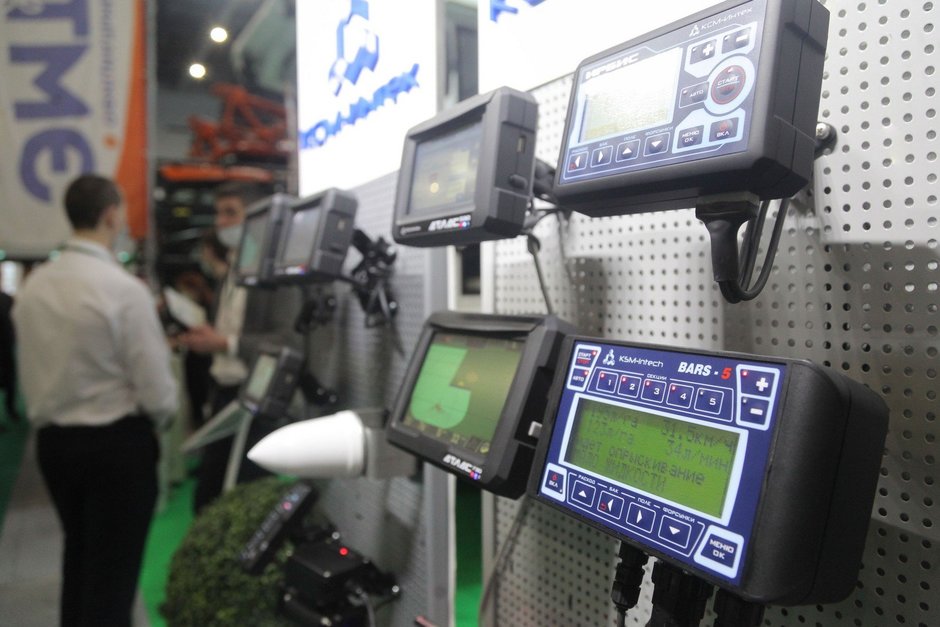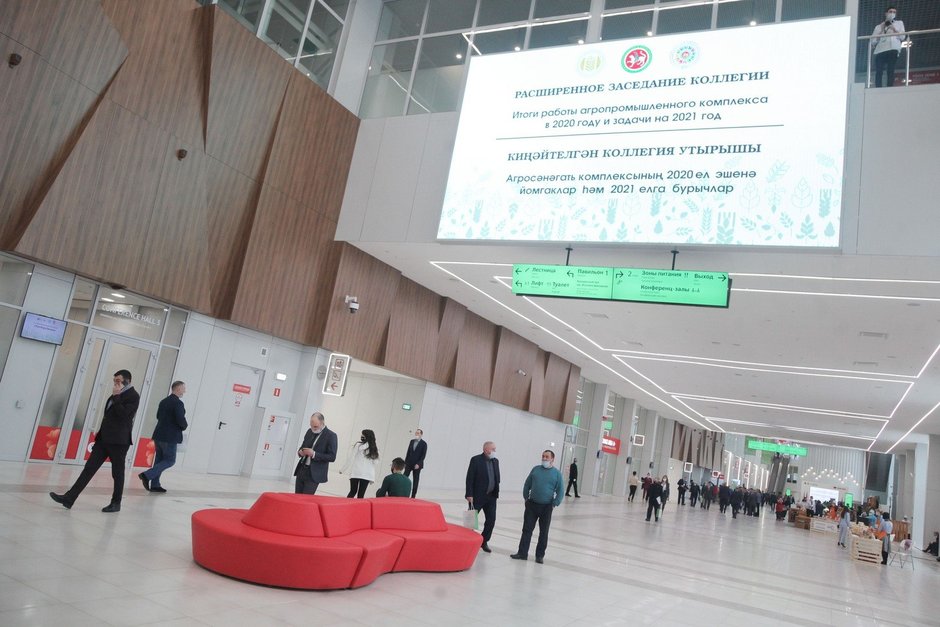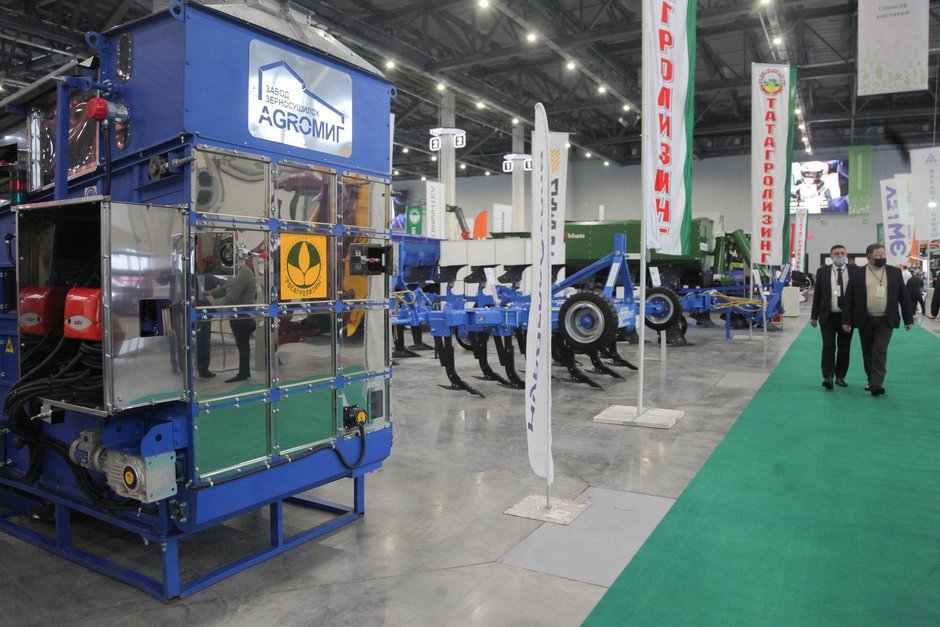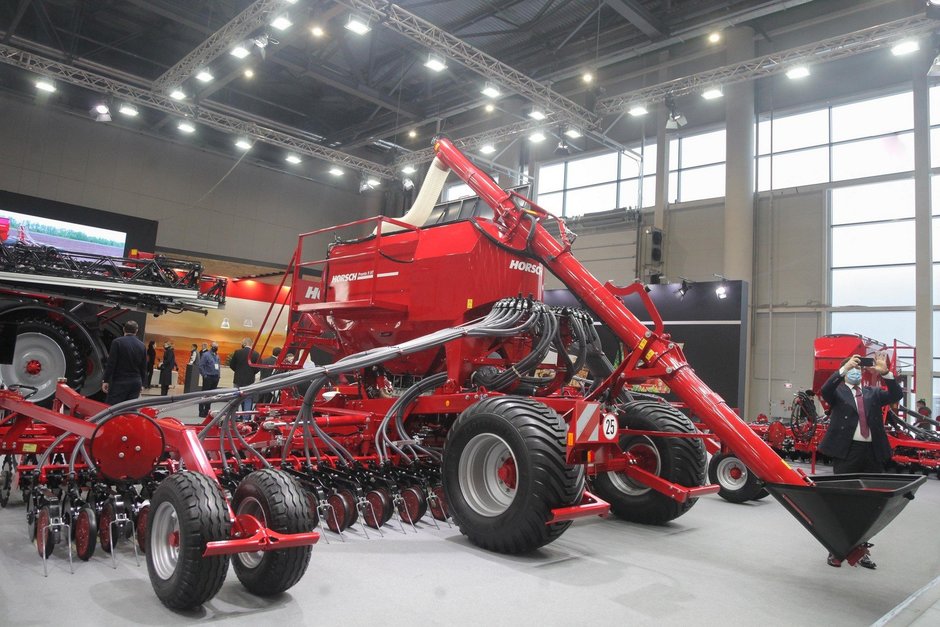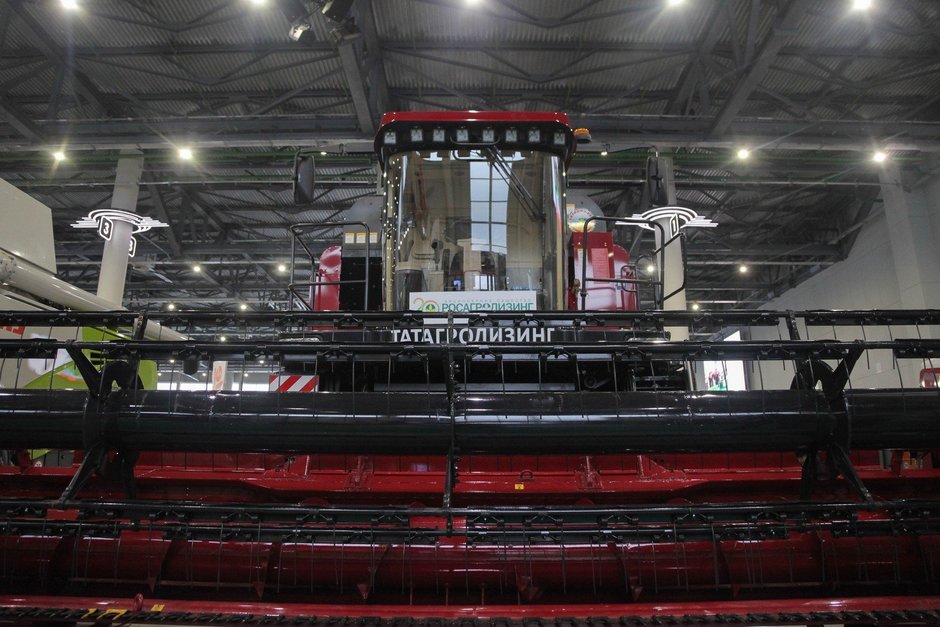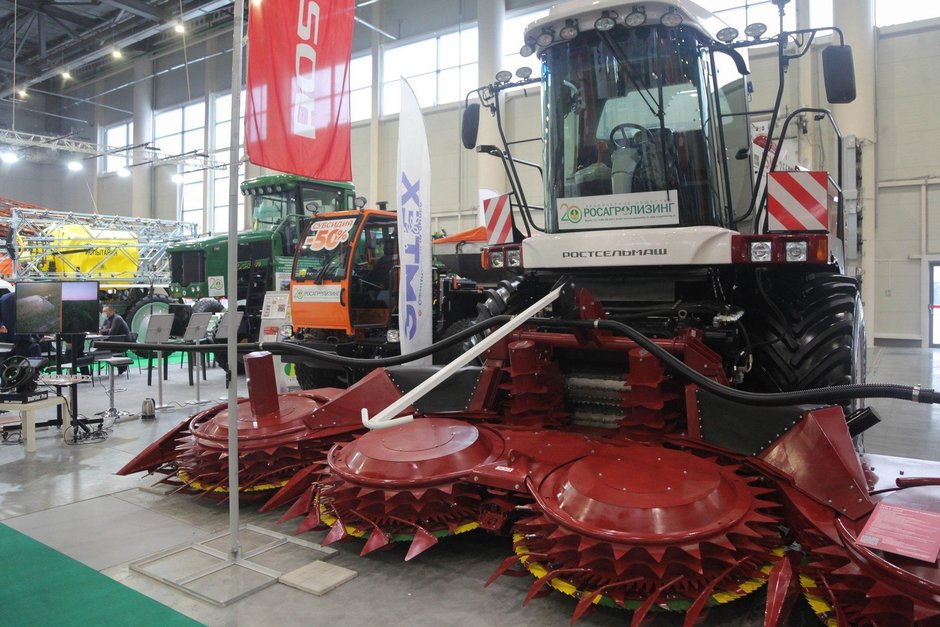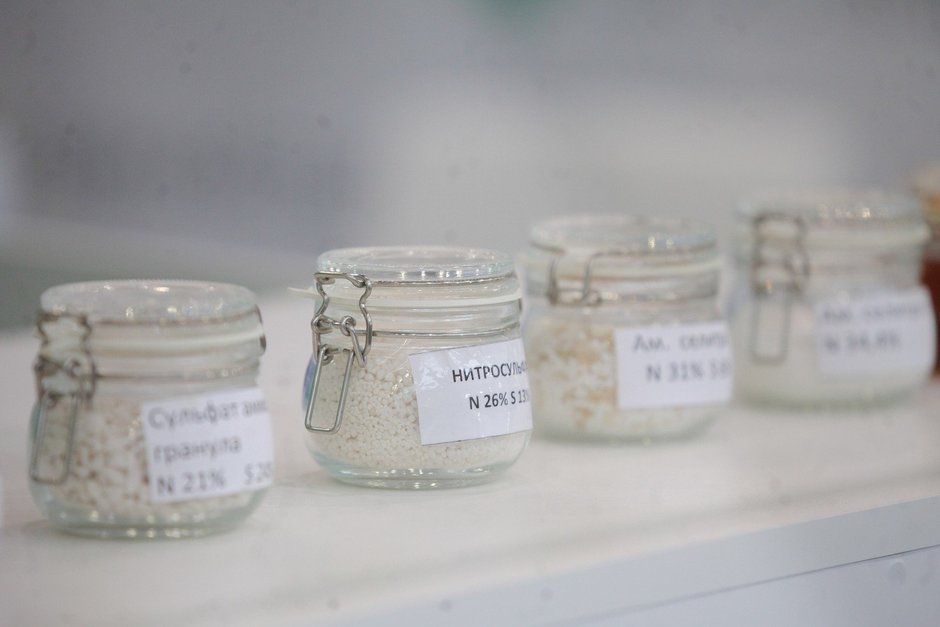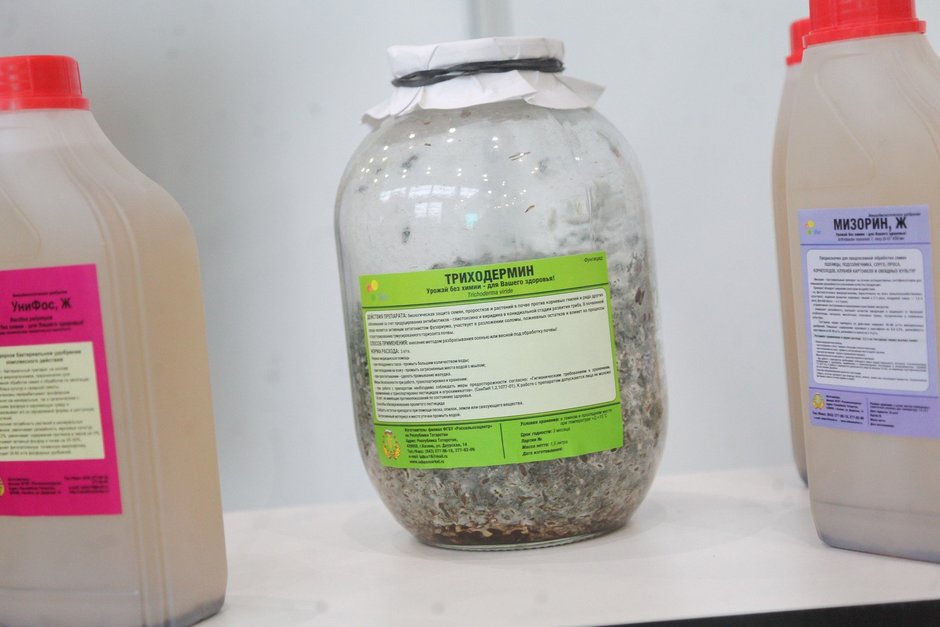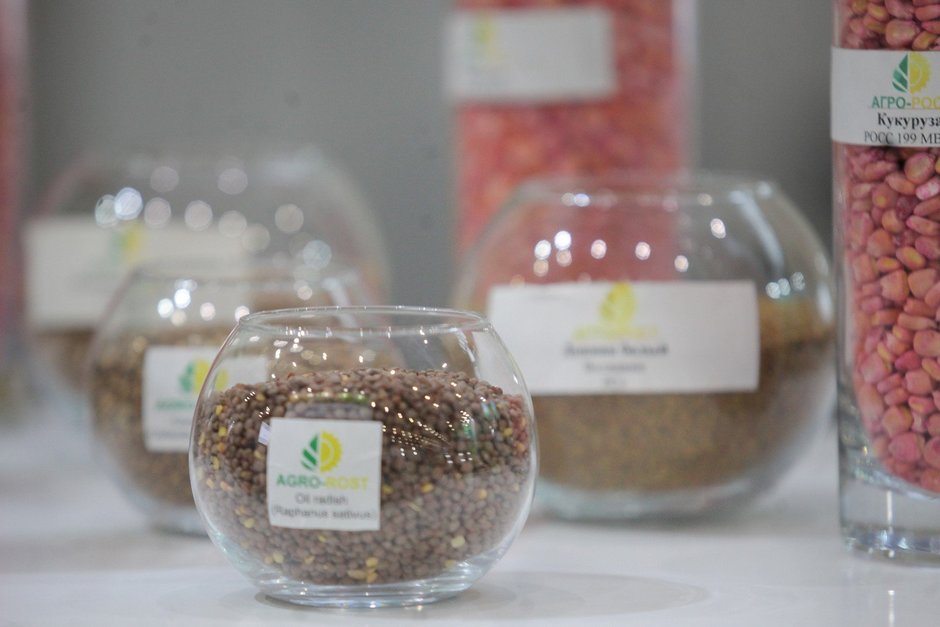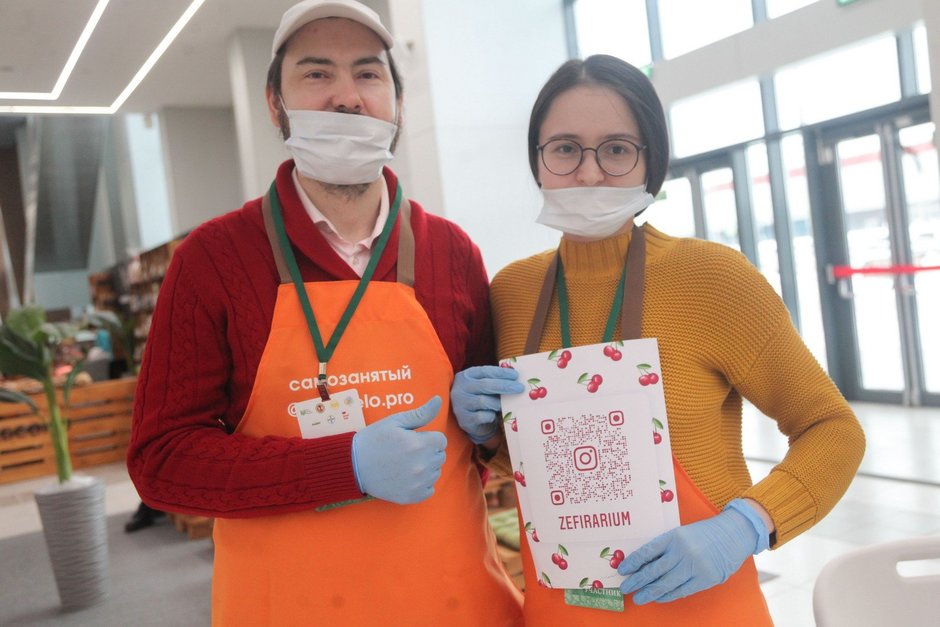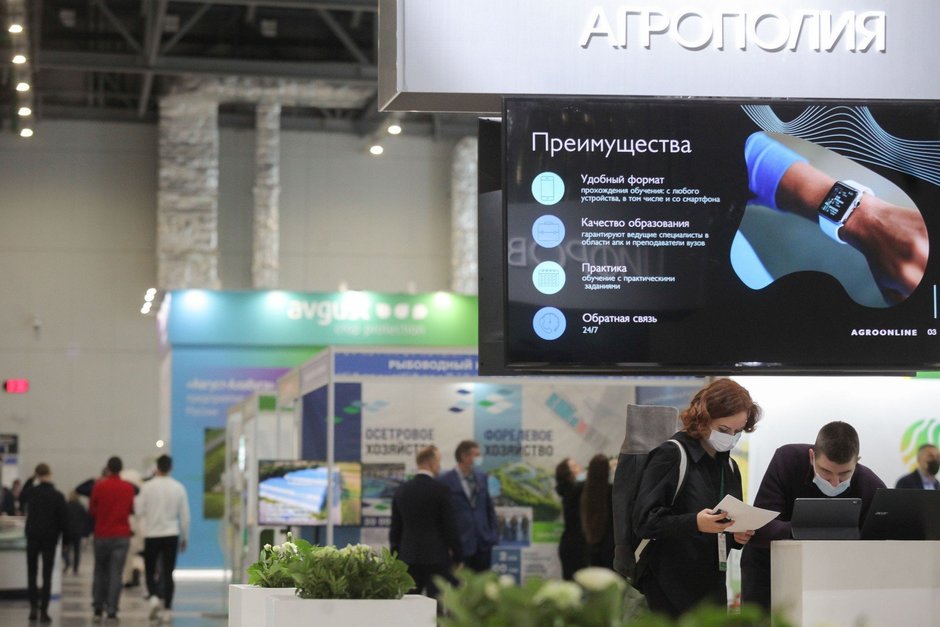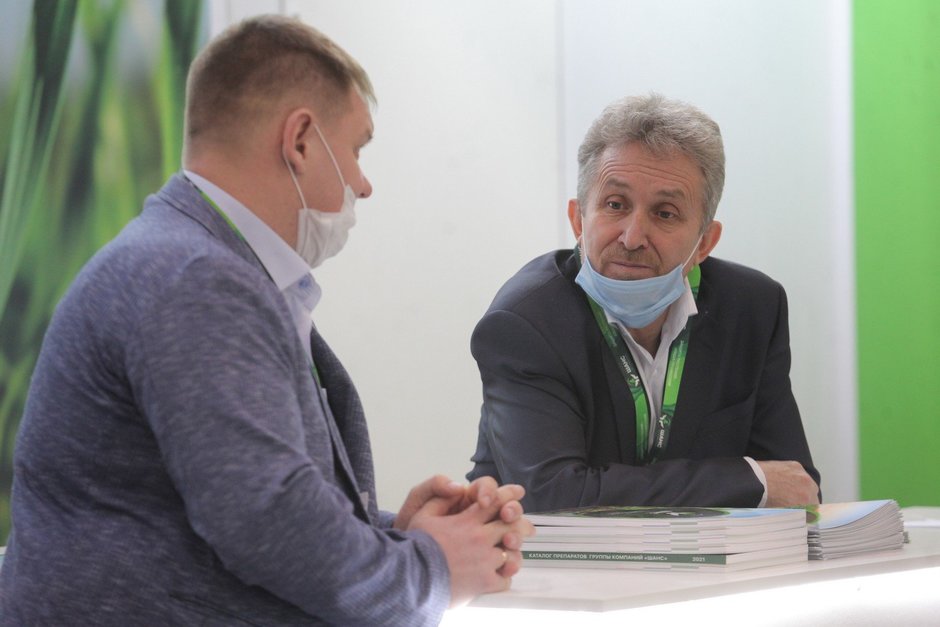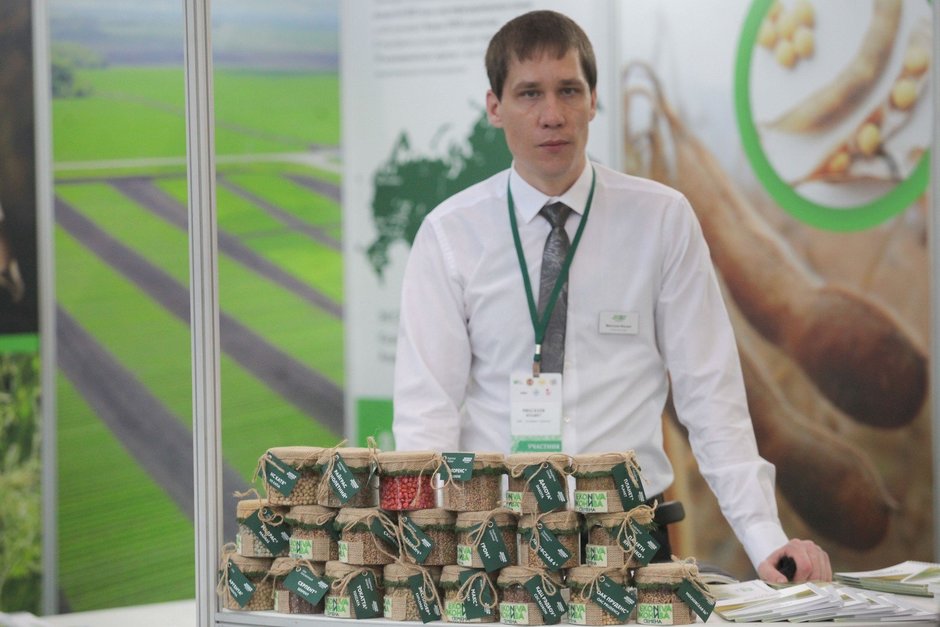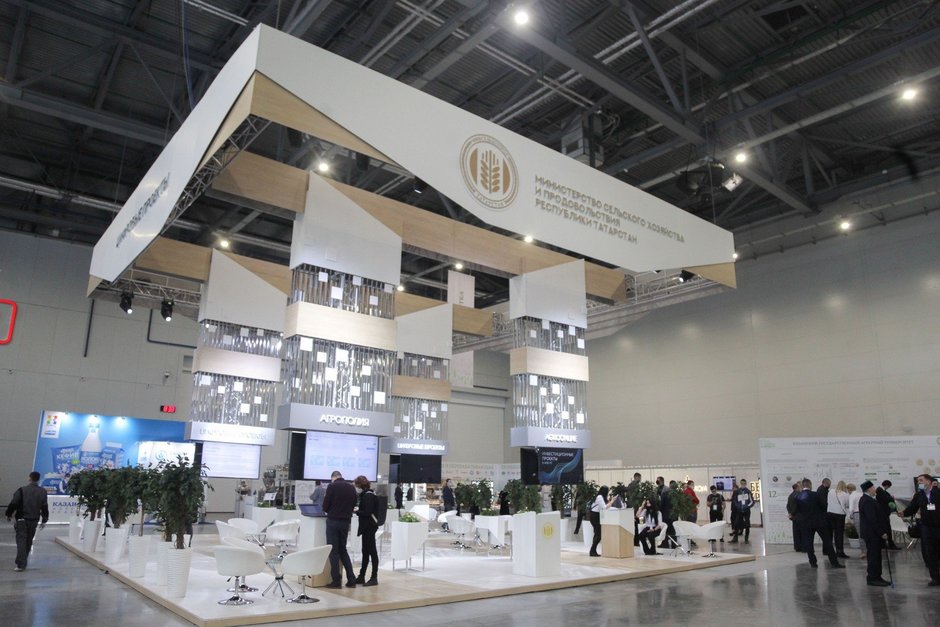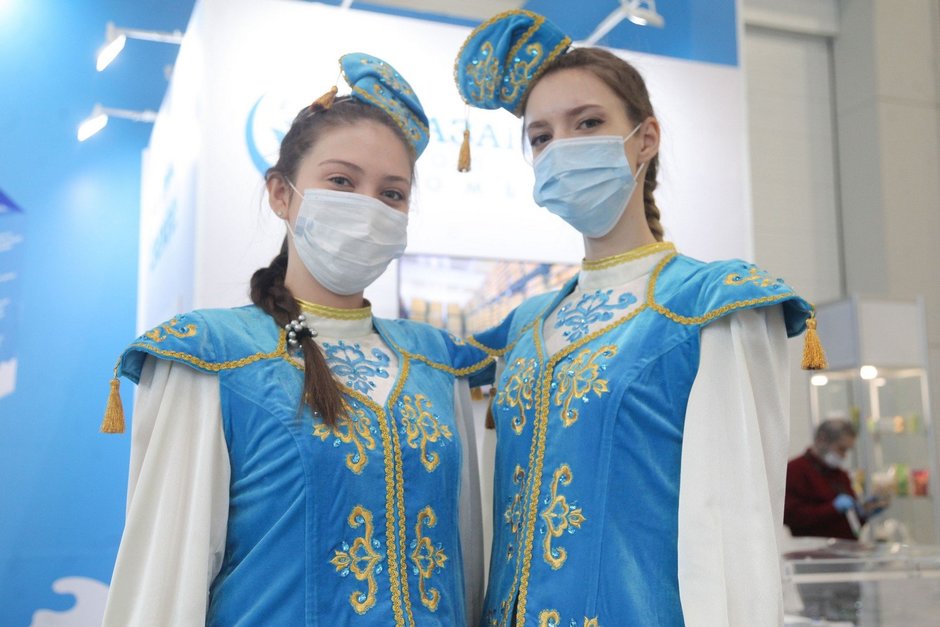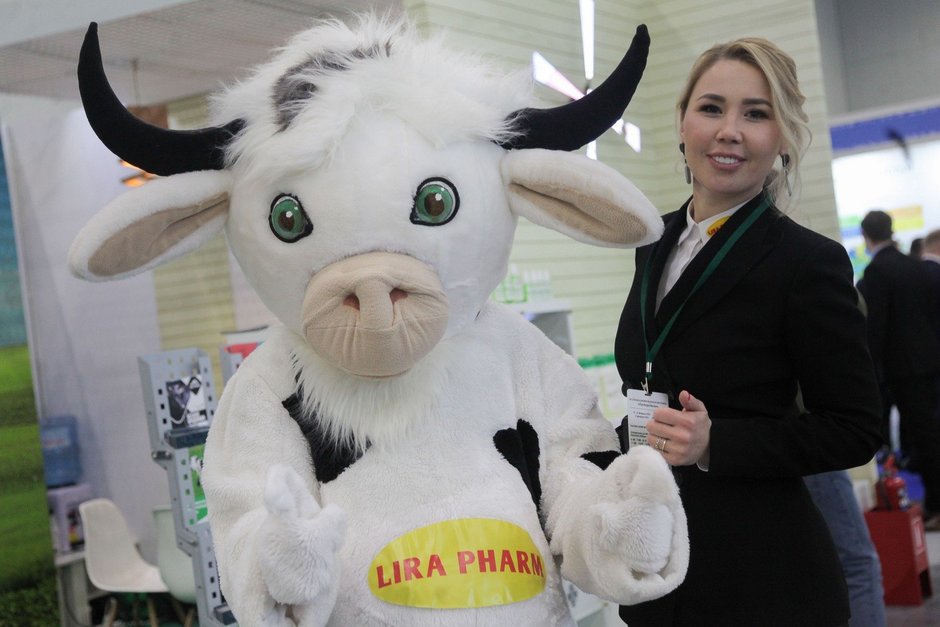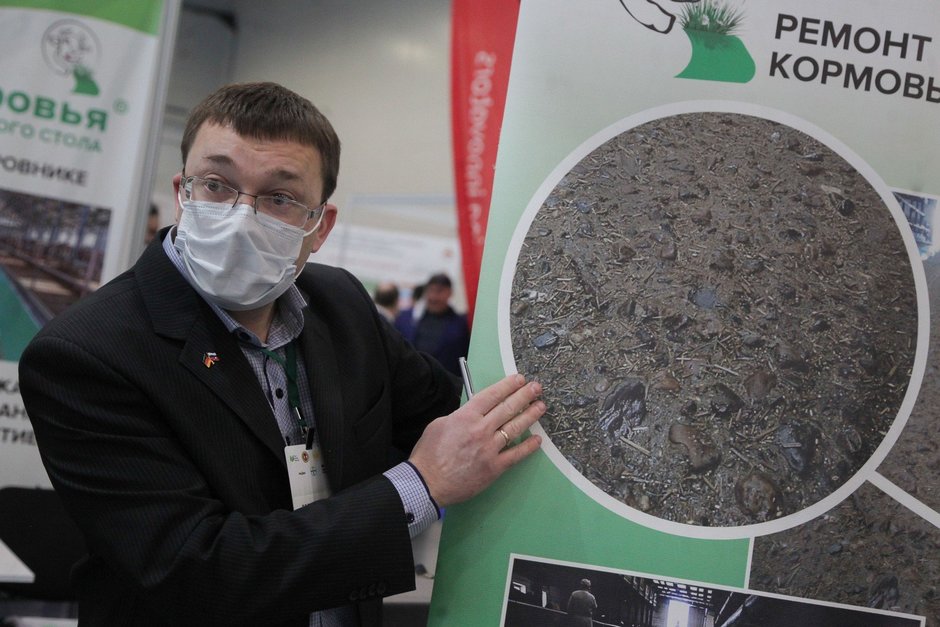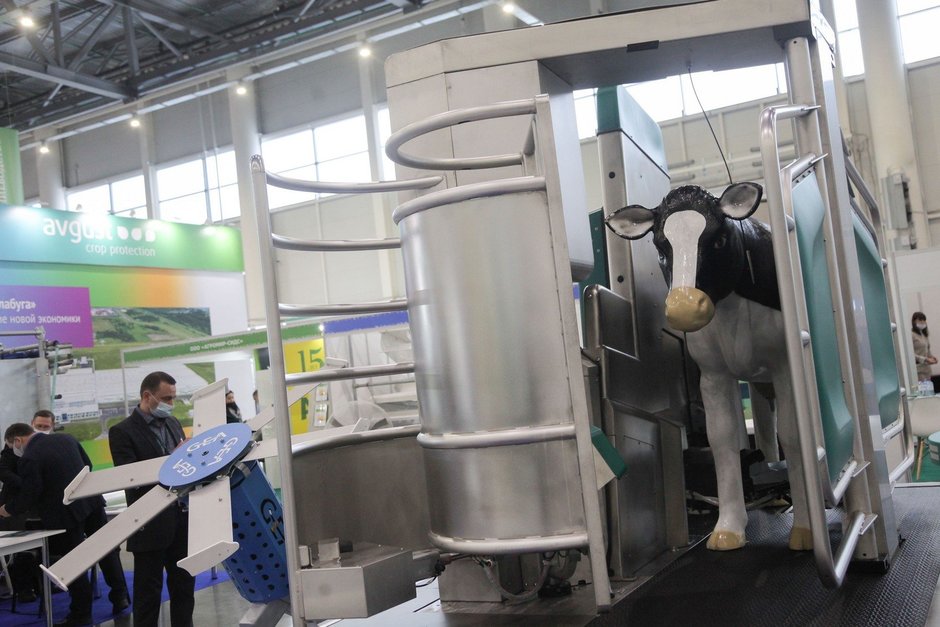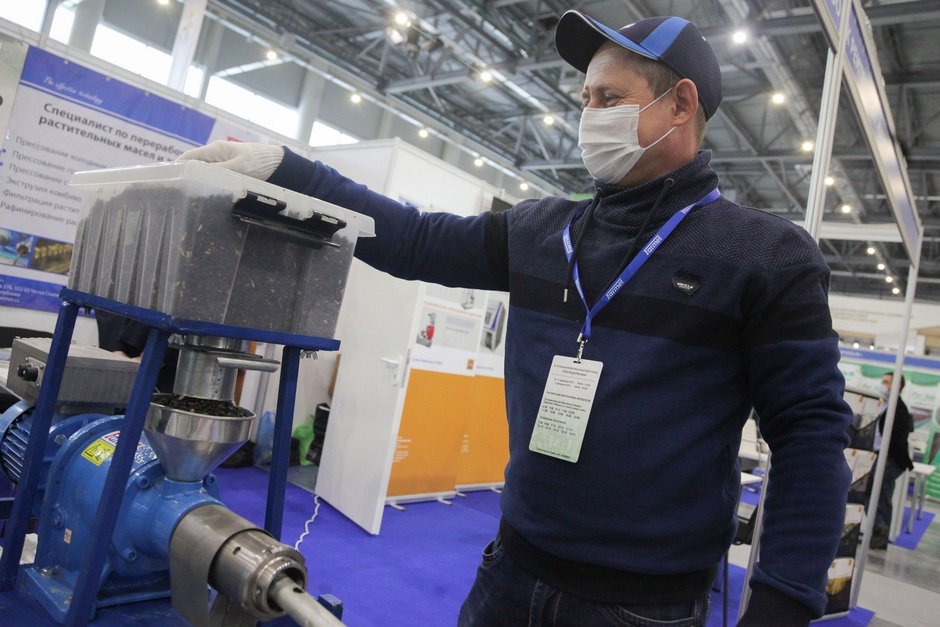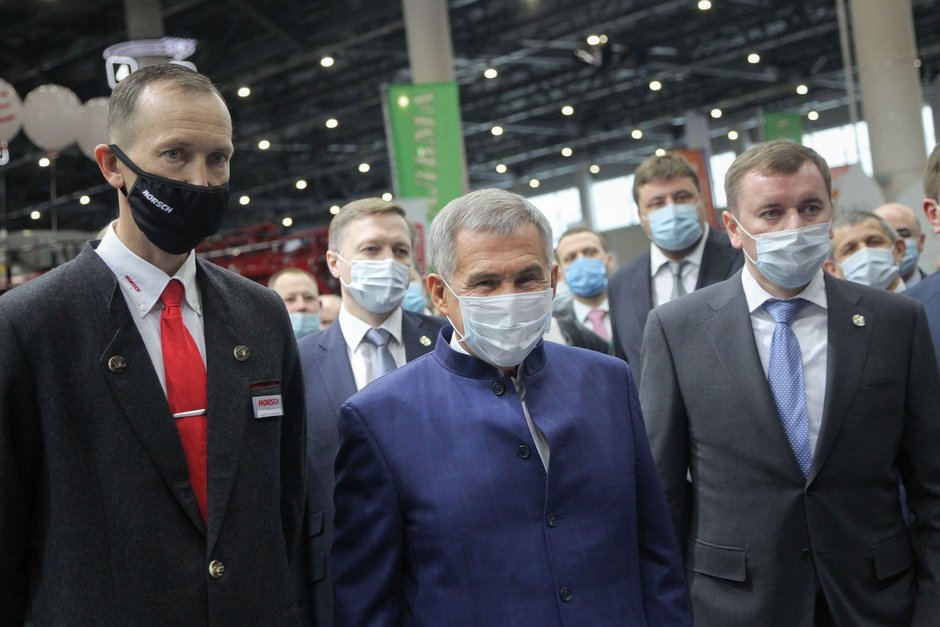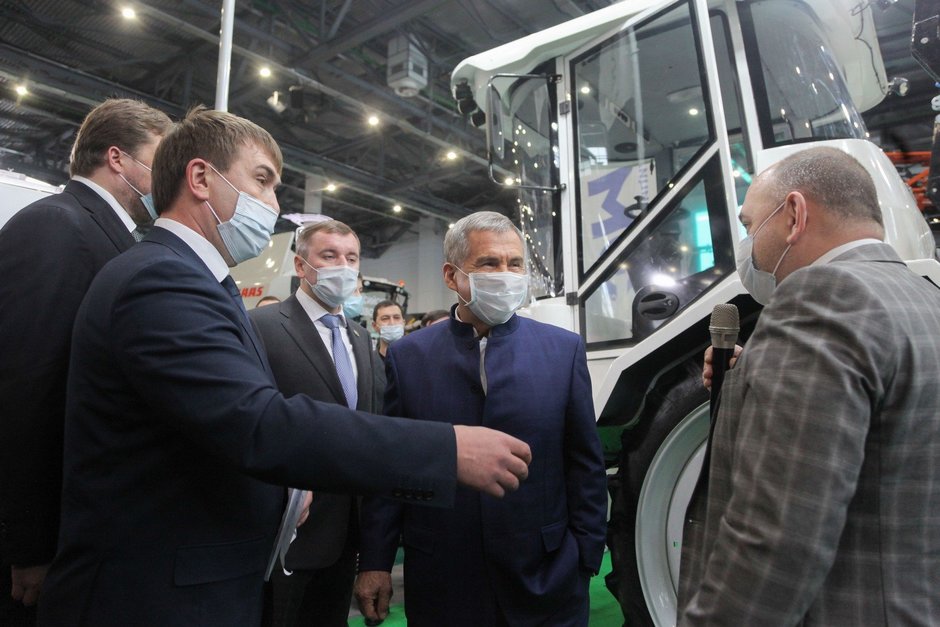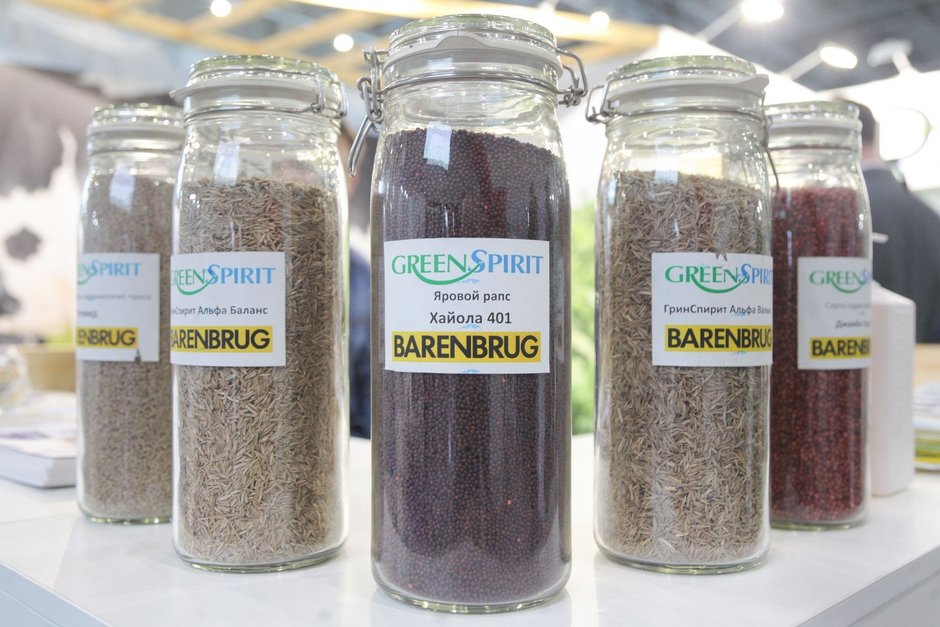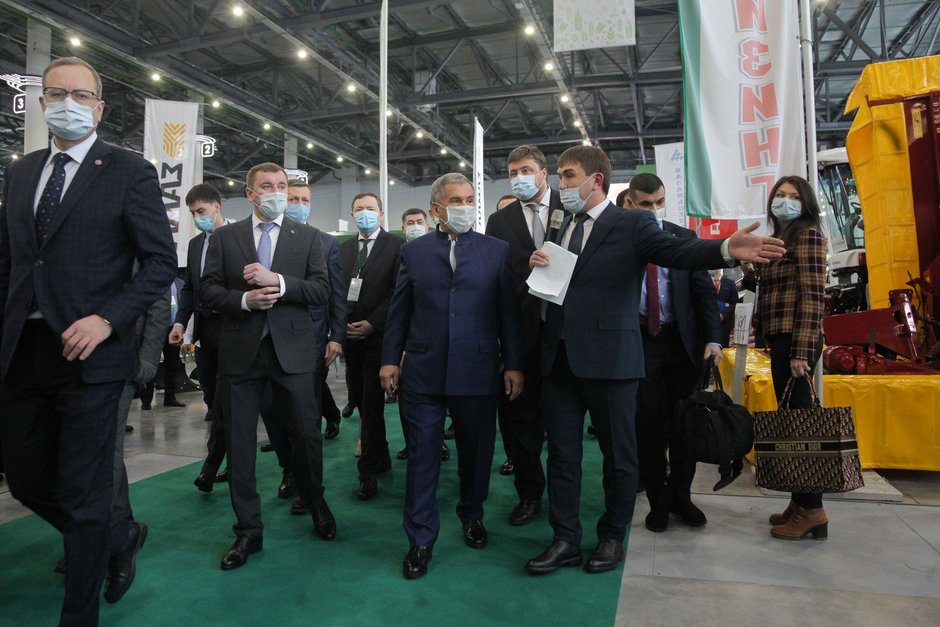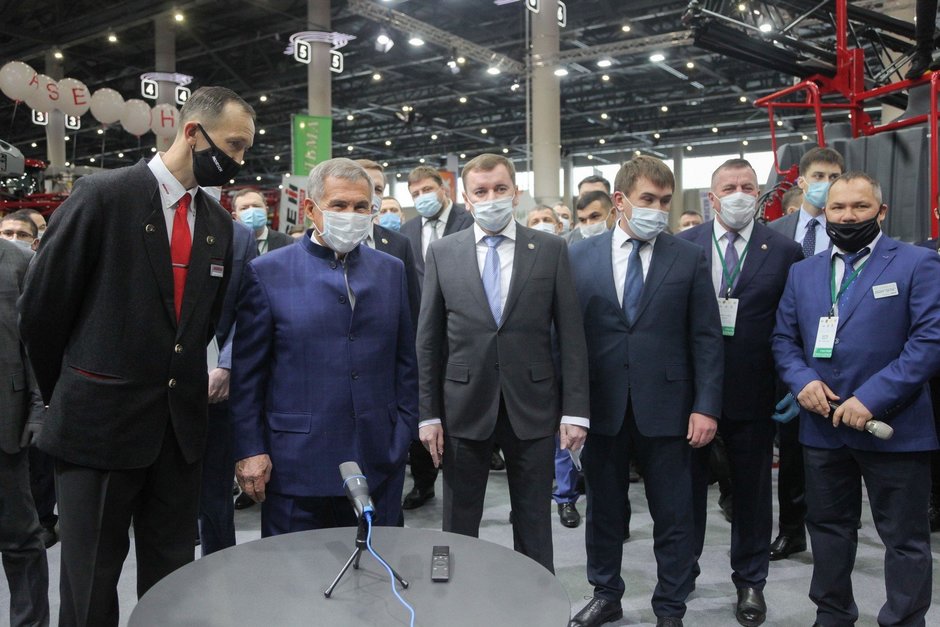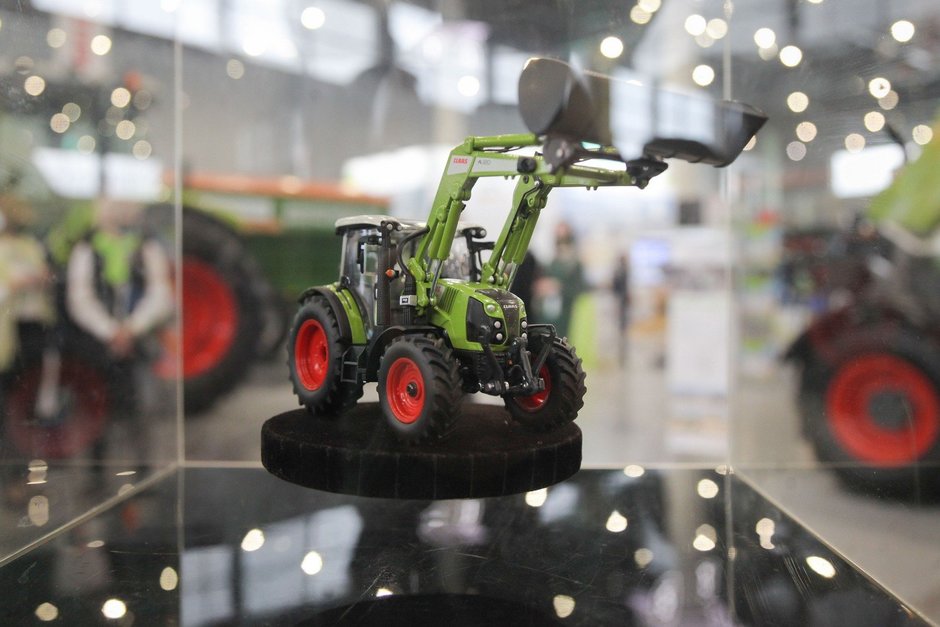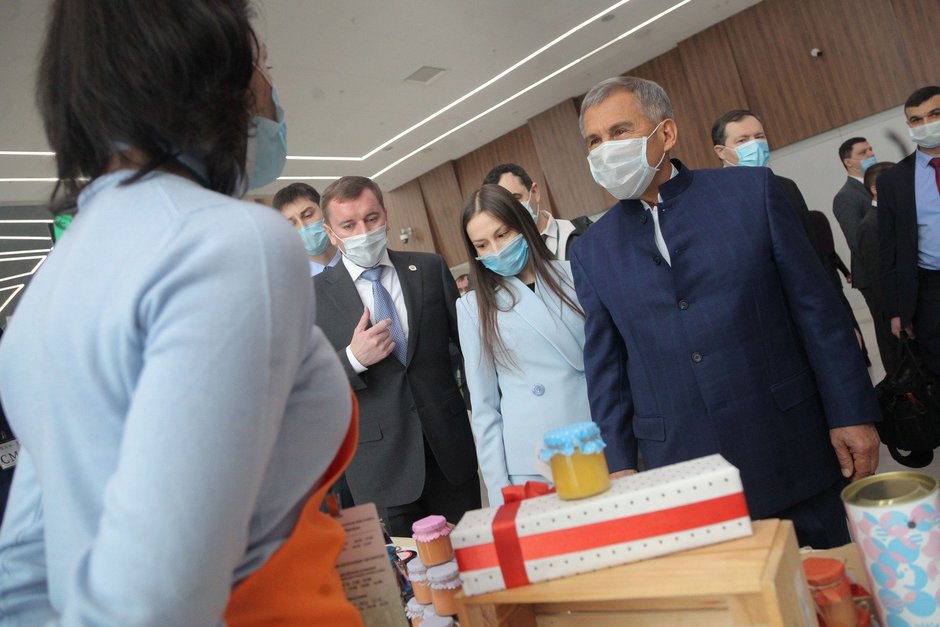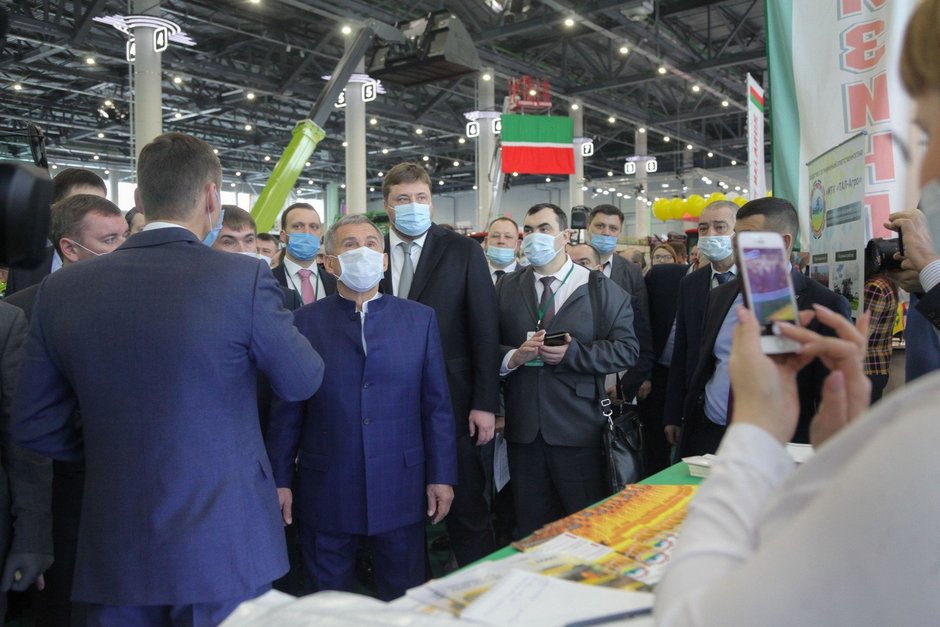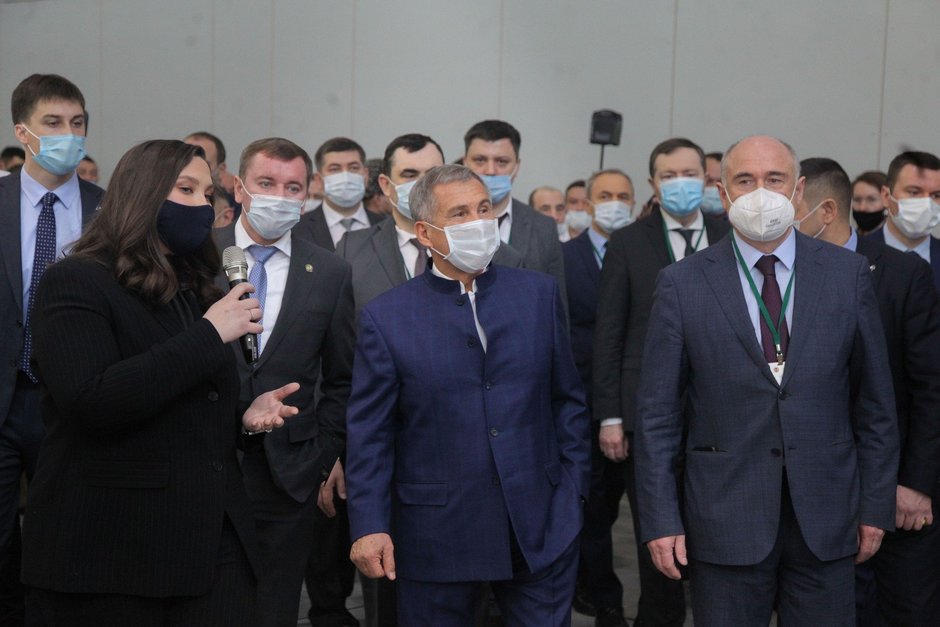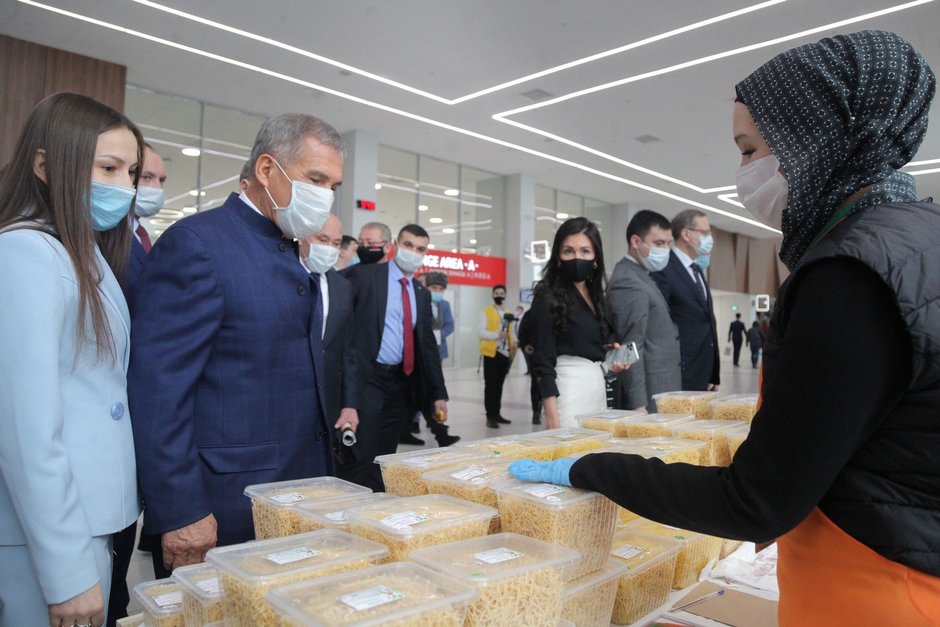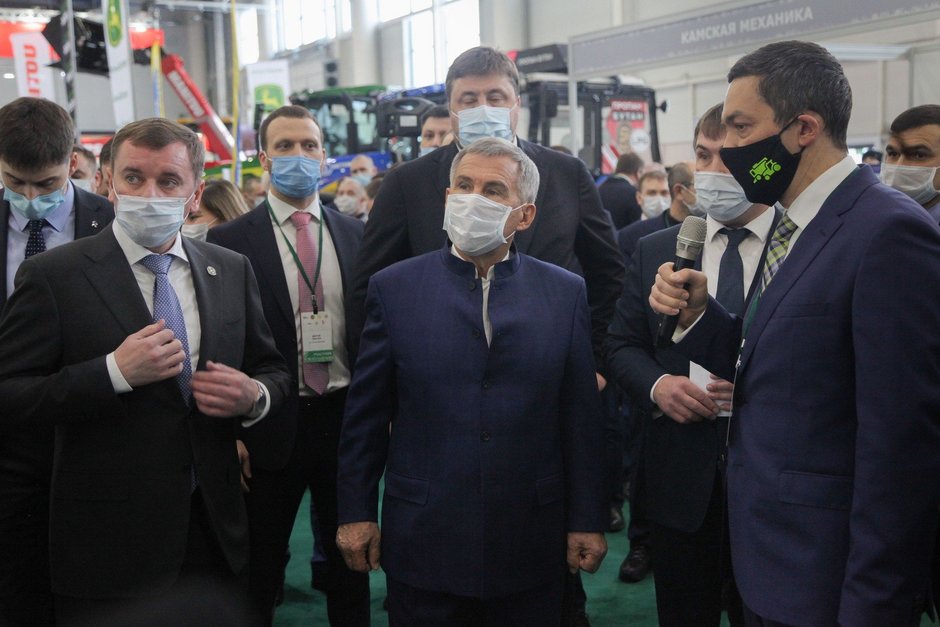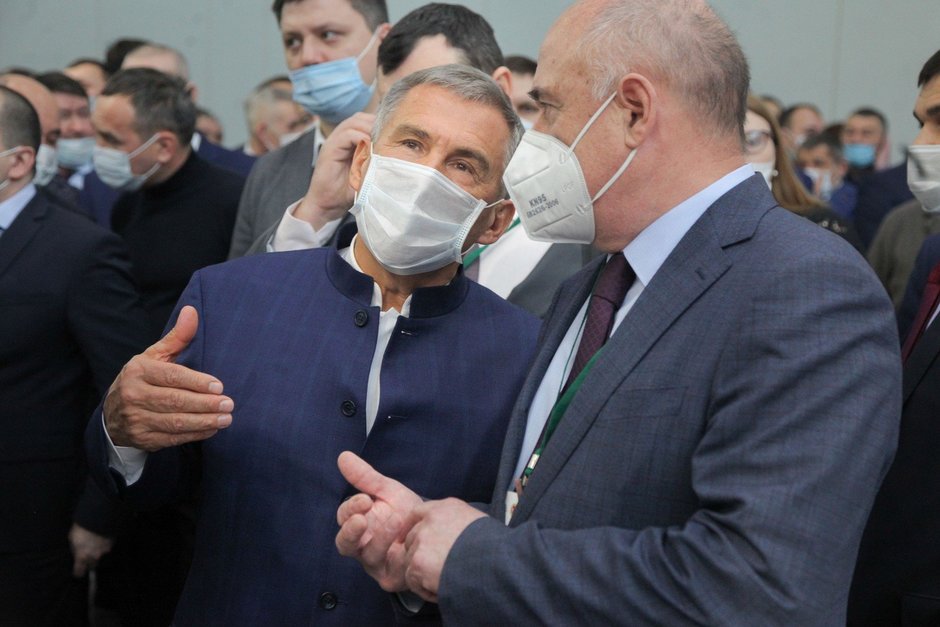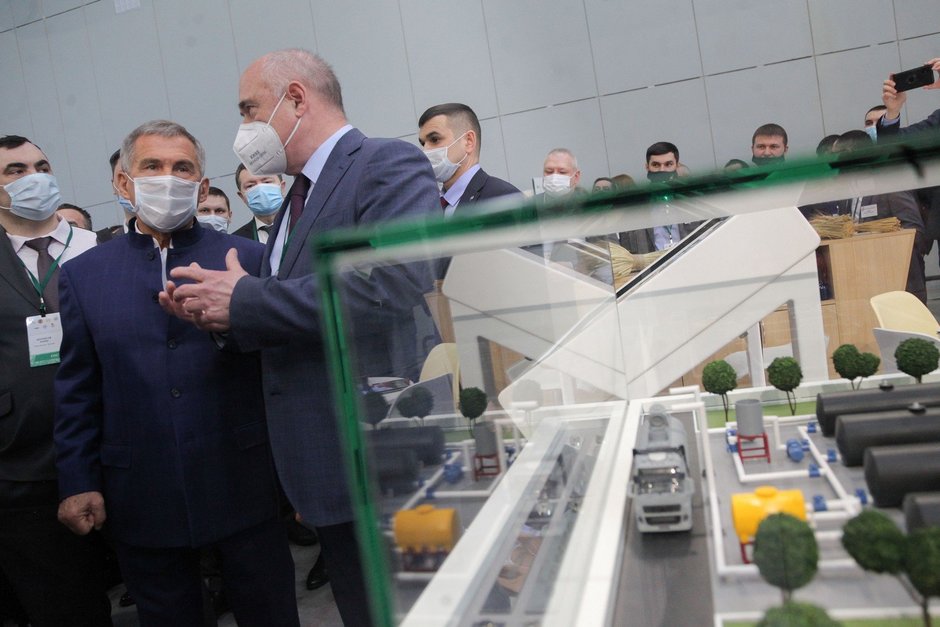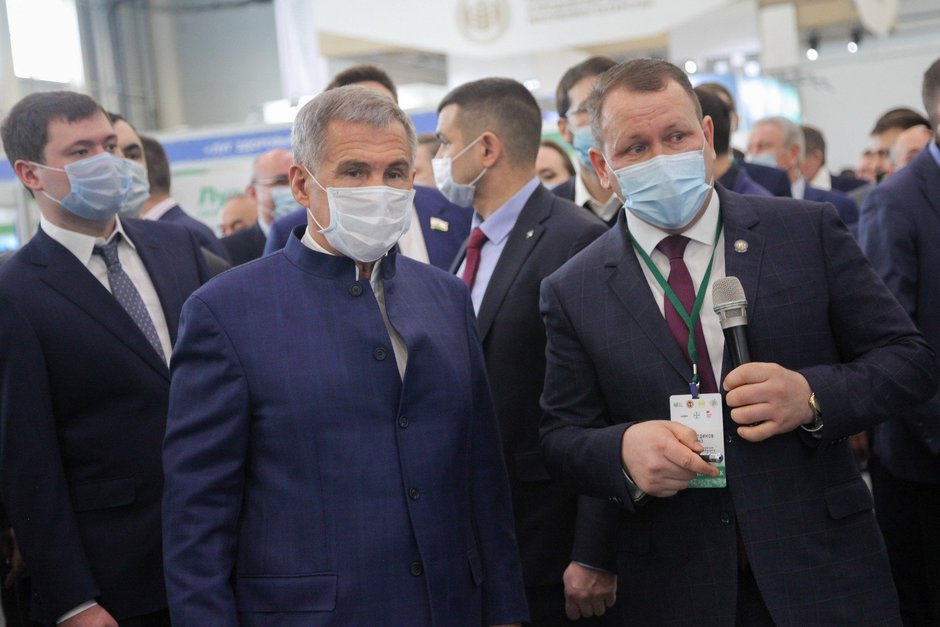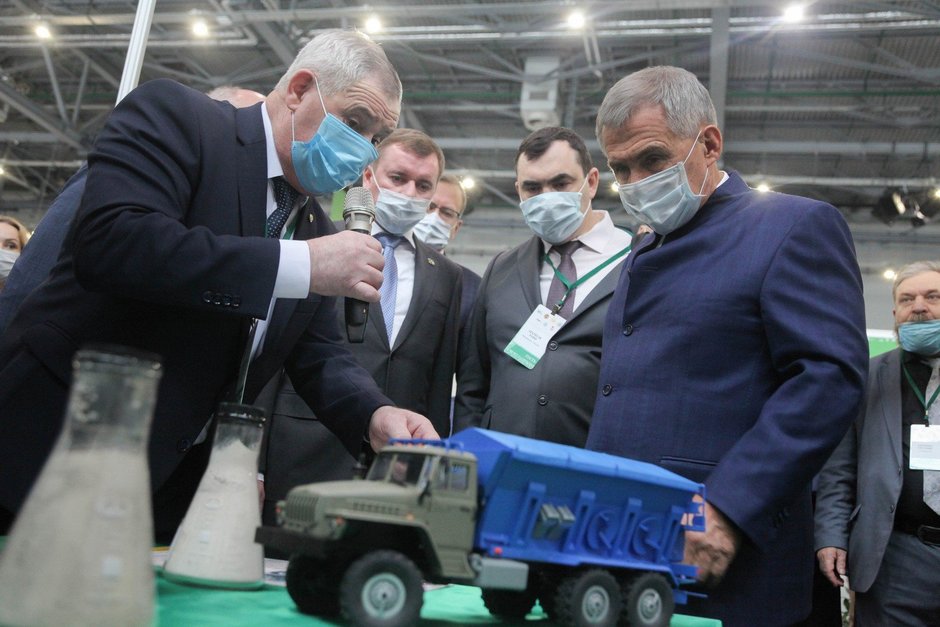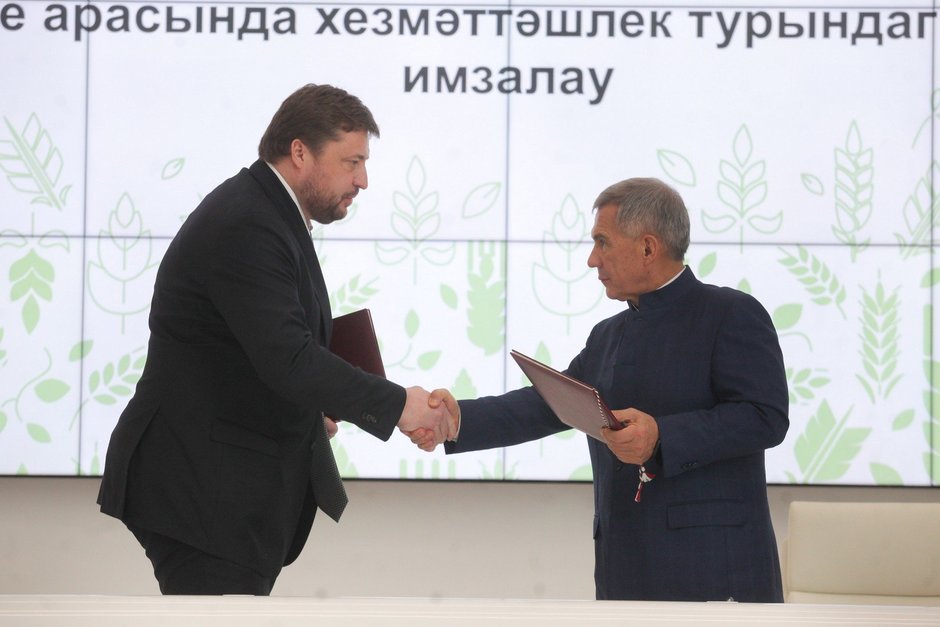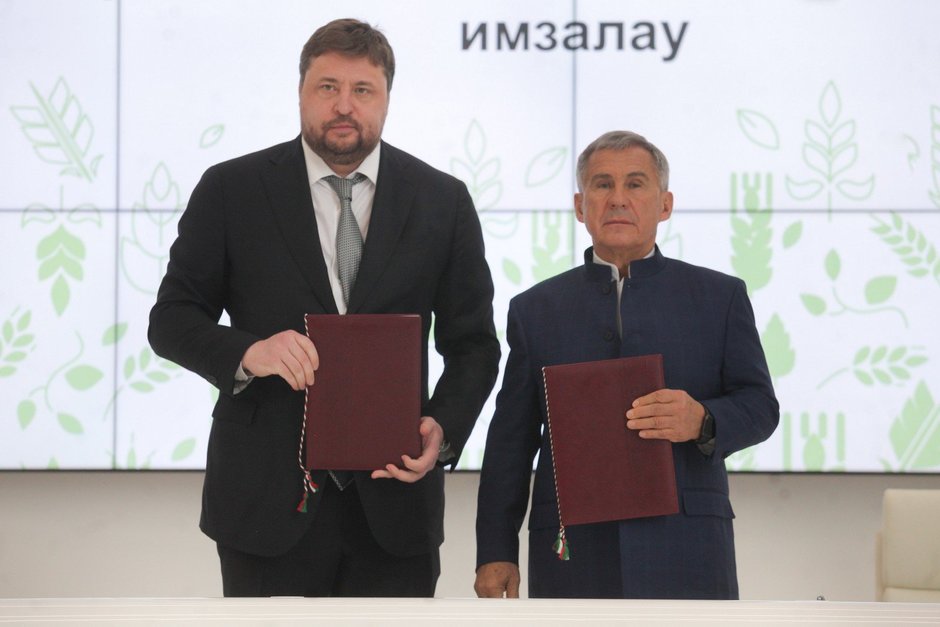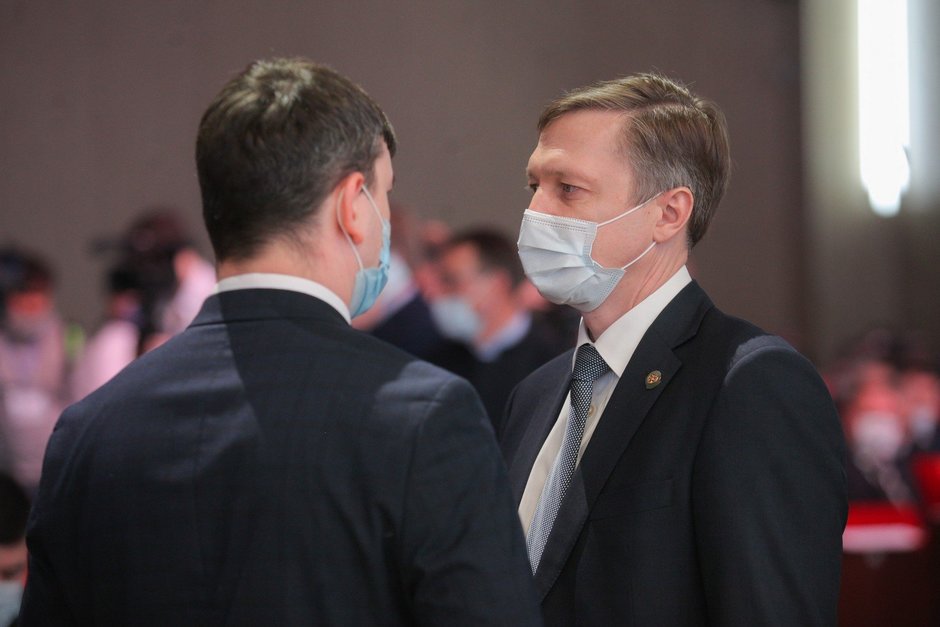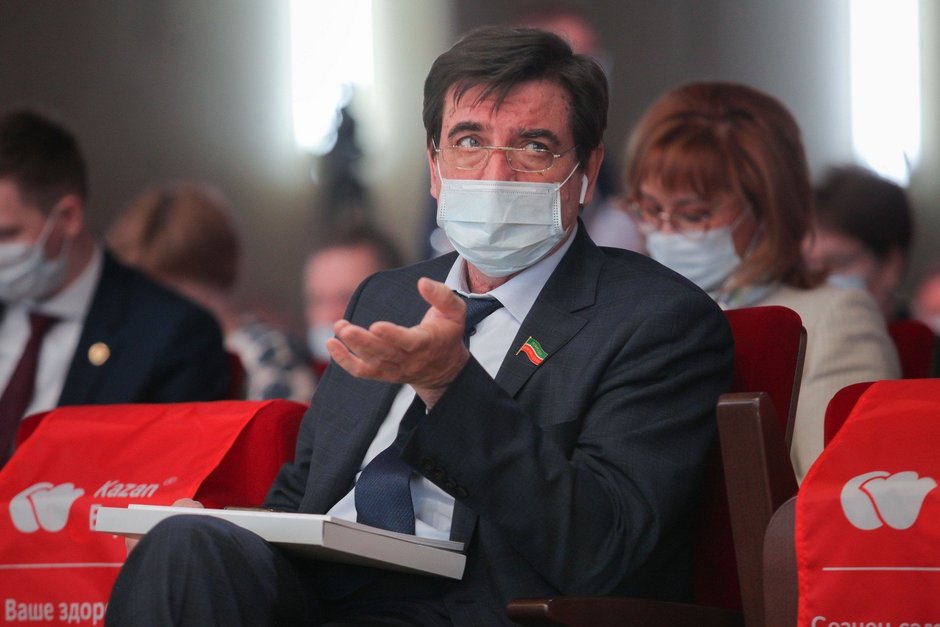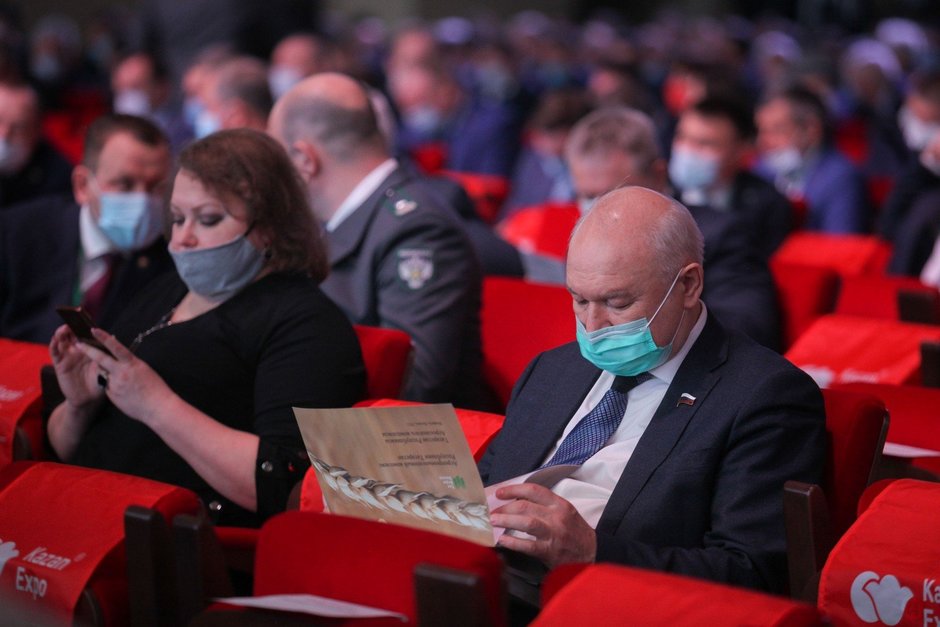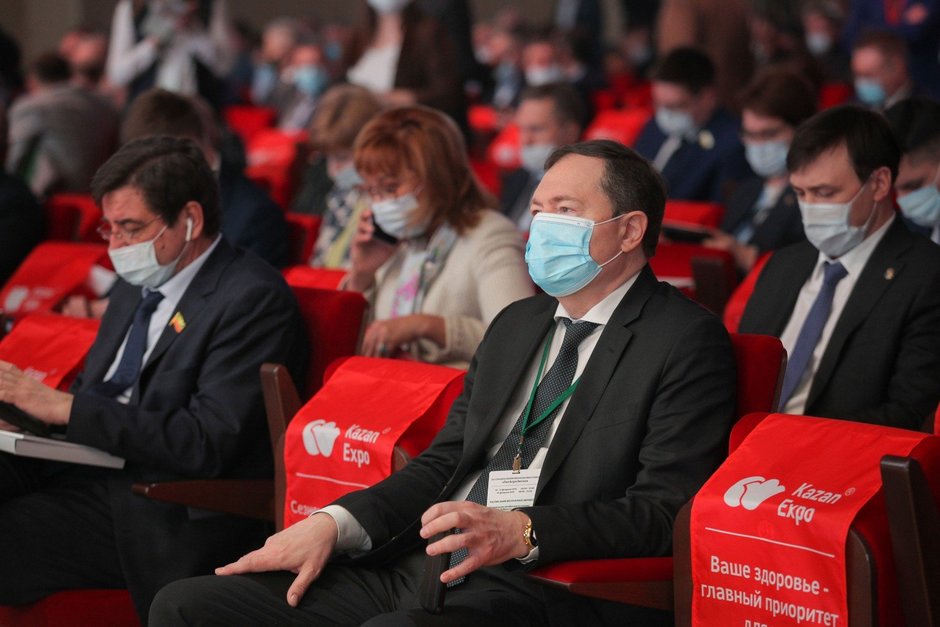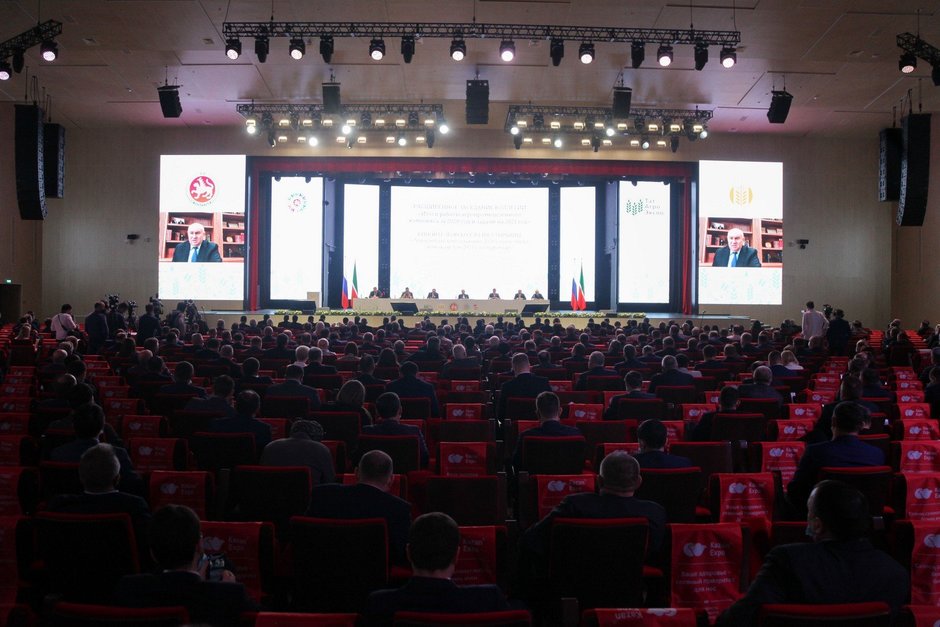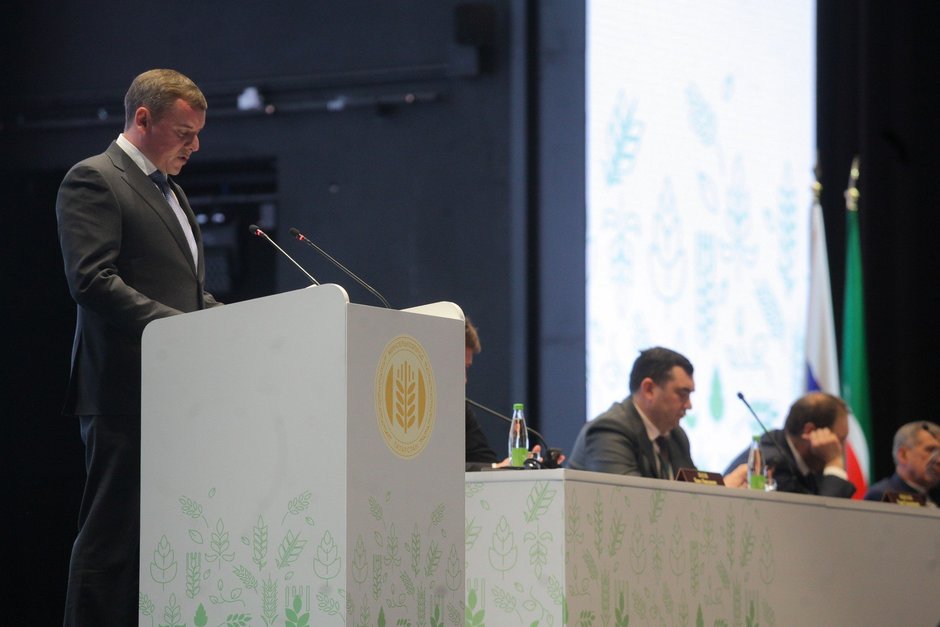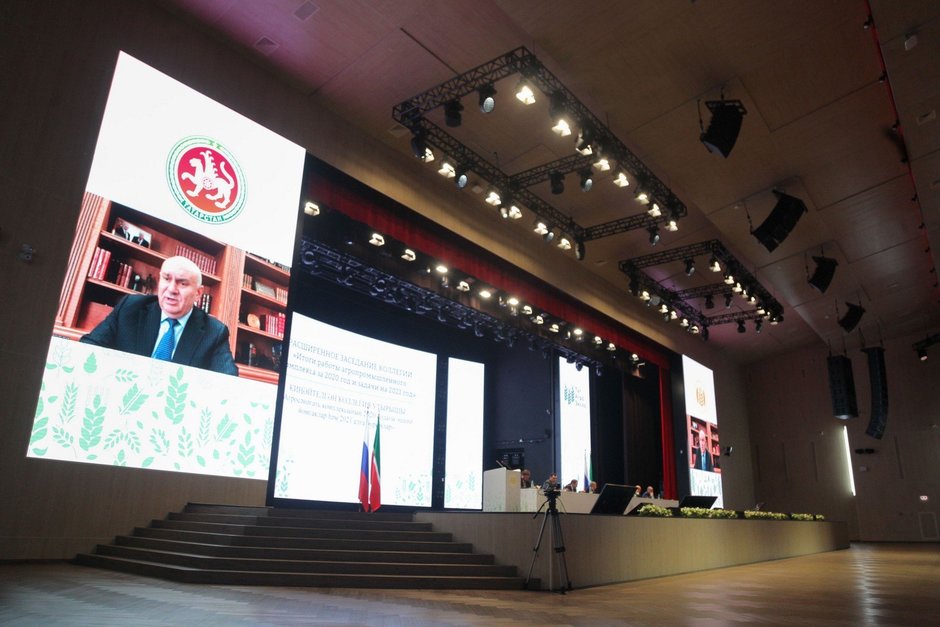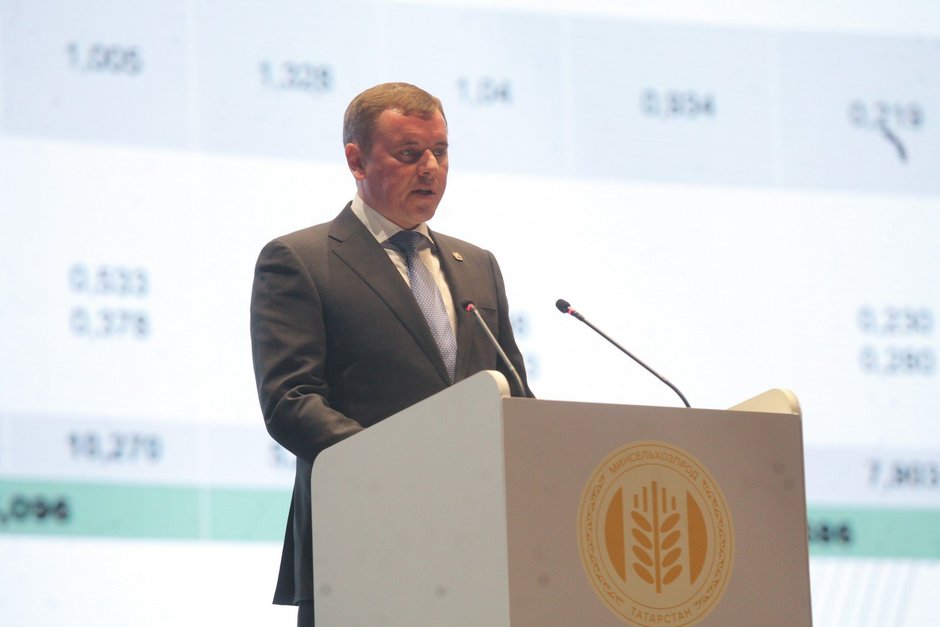Minnikhanov to Zyabbarov: 'Marat Azatovich, we need to work harder'
Board meeting of the Ministry of Agriculture of the Republic of Tatarstan: new priorities of state support, selective assistance to unprofitable farms, and compensation provided to victims of avian flu
The “window” of state opportunities for the modernisation of the agro-industrial complex is going to close soon. “This year will be the last year when the regions will have the opportunity to receive [federal subsidies] to reimburse capital expenditures," Roman Nekrasov, the head of the Crop Production Department of the Ministry of Agriculture of Russia, warned Tatarstan farmers at the reporting board meeting of the Tatarstan relevant ministry. The president of the republic, Rustam Minnikhanov, encouraged the villagers to take preferential loans for the upcoming sowing season and sent a “black mark” to the leadership of the state veterinary control due to an outbreak of avian flu in four districts at the end of last year.
Meat and milk investors are deprived of subsidies
The ministry of agriculture of Russia is ceasing to allocate subsidies from the federal budget to the regions from next year to reimburse part of the direct costs of creating and modernising agricultural facilities. This was announced by the head of the Department of Crop Production of the Ministry of Agriculture of the Russian Federation, Roman Nekrasov, during the final board meeting of Tatarstan farmers.
“The reimbursement of capital expenditures in most areas of support for the agro-industrial complex in 2021 will be provided for the last time," he warned, addressing numerous agricultural investors of Tatarstan. “This applies to your projects that are focused on the creation of new capacities. These are the development of seed production, projects to create potato and vegetable storage facilities, projects in animal husbandry and even flax processing — and I know there are such projects.”
He explained the upcoming curtailment of the federal programme by the lack of funds in the federal budget. “They are quite limited in our country, so it has been decided that in 2021 these measures of state support will end," he explained, without specifying the specific amounts of subsidies remaining for distribution among the regions this year. At the same time, he urged not to abandon projects and offered to use the “window of opportunities” for the last time. “These measures will still be in effect in 2021," Roman Nekrasov assured. “But then they will be liquidated.”
Elaborating on the importance of the moment, the head of the Department of Crop Production of the Ministry of Agriculture strongly advised “to intensify the work on the preparation of applications for the competition of the ministry of agriculture of Russia”. “I ask all investors, together with the ministry of agriculture of the Republic of Tatarstan, to carry out this work very efficiently and in the shortest possible time," he urged.
The news of the curtailment of one of the key measures of federal support for the industry was met with silence. Apparently, many were already mentally prepared for the surprise, and none of the participants of the board meeting wanted to speak either in the hall or on the sidelines. It should be noted that they operated for almost 10 years and were an alternative to concessional lending in the dairy and livestock complex. For example, investors in the construction of meat complexes were provided with a subsidy of 20% of the total capital costs, and in dairy farming, from 2017, they even increased the return on costs to 30% of the project cost.
Forward to export markets
The bitter pill was sweetened by that the programme to support the export of agricultural products from Russia did not fall under the sequester. However, these tools remain unclaimed for the republic, since the volume of agricultural crop exports from Tatarstan is small.
According to the ministry of agriculture of the Republic of Tatarstan, last year the amount of products sold for export amounted to $266,8 million, although with an increase of almost 40% compared to the previous year. The export of $320 is planned for 2021.
Realising that the change of priorities was not in favour of Tatarstan, the head of the department of the ministry of agriculture of Russia noted that it is not necessary to focus only on the export of oilseeds.
“In the world market, there is a demand for fodder crops, livestock products," Nekrasov listed possible options for increasing exports from the republic. “The prices that are on the world market, seriously exceed the Russian ones and we need to take advantage of this.
Russian benefits for mushrooms and berries
But the focus of the ministry of agriculture of Russia was on the development of fruit and berry and horticultural products. “We have put in them increased coefficients for the laying of orchards and berry plantations, and we believe that this direction will be in demand among citizens who position themselves as self-employed with the prospect of entering farms," said Nekrasov.
By the decision of Minister of Agriculture of the Russian Federation Dmitry Patrushev, the list of equipment at preferential rates for this business area (gardening and berry growing) has been seriously expanded. Special attention is paid to the mushroom growing industry, Roman Nekrasov continued to talk about innovations:
“We have made serious changes that allow us to provide benefits in this area. Mushrooms have been included in the list of agricultural products, so that preferential taxation is applied to this business area. However, soft loans can also attract deep processing of grain," Nekrasov added at the end of the topic of changing priorities in federal state support.
Tatarstan farmers feed themselves and the whole republic
Strictly speaking, Tatarstan farmers are not much spoiled by direct budget support. Deputy Prime Minister and Minister of Agriculture and Food of the Republic of Tatarstan Marat Zyabbarov in his report reported at the board meeting that last year 15,7 billion rubles were allocated from the budget for the development of the industry (including 2,4 billion rubles for the development of rural areas). At the same time, the volume of gross output reached 263,4 billion rubles, or 18% in GRP.
“Last year, we were able not only to ensure the food stability of Tatarstan but also collected a record harvest of bread over the past 12 years — more than 5,5 million tonnes!” he said proudly.
The victorious report did not end there. According to the minister, Tatarstan is ranked the first in milk production, the 6th — in the gross harvest of sugar beet, the 7th — in the gross harvest of grain and the production of livestock, poultry for slaughter, and the 10th — in the gross harvest of vegetables
Cash revenue increased to 132 billion rubles, and profit increased by 3,8 billion rubles. The minister did not say how the financial indicators increased, but it is not difficult to guess. Since last year, wholesale prices for sunflower oil and sugar have been rising in the country, and overall food inflation, according to Rosstat, has reached a 5-year record of 7,1% by the beginning of February.
“This year, the development of the agro-industrial complex is expected to receive funding in the amount of 12,7 billion rubles, including 4,8 billion rubles from the federal budget. Tatarstan receives the maximum amount of federal support," Zyabbarov said.
Not supporting the unprofitable ones?
The Tatarstan ministry of agriculture, following the Russian one, is transforming the mechanism for allocating state support, but only for unprofitable farms. The minister announced that from next year, unprofitable farms will receive subsidies based on the results of a financial audit by an interdepartmental expert commission. According to him, “on the basis of the conclusion, the unprofitable enterprise will receive approval, or it will be refused”.
The ministry of agriculture continues to rank municipalities on five performance indicators. “According to the results of 2020, Atninsky, Tukayevsky, and Sabinsky districts traditionally lead the way. Baltasinsky, Arsky, and Menzelinsky have risen in the rating. And Laishevsky and Pestrechinsky districts have weakened their positions and at this rate they risk moving into the red zone," the minister said.
The priority next year will be the opening of feed centres, which will give the opportunity to keep more livestock in private farms and therefore earn more. Now the number of cattle has decreased by 3% or by 22,500 heads. Last year, 17 centres were put into operation in 10 municipal districts, and this year it is planned to build another 20 feed centres. Investors have joined the process of restoring livestock. In the Menzelinsky district, the investor Kamsky Bekon is developing design and estimate documentation for the first stage of a dairy complex for 3,600 cows. The Avgust company has started the construction of dairy complexes for 2,400 heads of dairy herd in Menzelinsky and Muslyumovsky districts. Nine hundred heifers have already been delivered to the Muslyumovsky site. In August, another 1,500 heads are planned. In the Leninogorsk district, a dairy complex for 400 heads is being built with a commissioning deadline of June 1. The Mir company in the Yelabuga district is building a complex for 1,800 heads and has already delivered 928.
The president on the disaster of the Zalesny agricultural firm: “Maybe it's not its fault”
The president of Tatarstan made a closing speech. First of all, he thanked the workers of the village for their work:
“In the difficult conditions of the pandemic, a record harvest has been collected in the republic. Besides, we could maintain our leading positions in milk production and potato harvesting," he said with pleasure.”
Speaking about the priority tasks, Rustam Minnikhanov expectedly highlighted the upcoming sowing campaign. According to him, it will be financed with soft loans. The current subsidy limit of 243,3 million rubles will attract 9,2 billion rubles for sowing.
Most of all, the president is concerned about the foci of infection among animals, which can lead to the death of livestock. Rustam Minnikhanov recalled that last year, foci of bird flu were registered in four municipal districts, which, in particular, severely affected the Zalesny agricultural firm in the Zelenodolsk district. All the turkeys were burned here. The damage amounted to 220 million rubles, and the farm was not insured. The causes of the disease were the introduction of influenza by wild waterfowl and the non-compliance with veterinary and sanitary rules.
“Avian flu, 4 districts have been affected," the president sighed heavily. “You have your own unit, you did not warn us in time, you did not take measures. Marat Azatovich, we need to work harder. If there is no veterinary control, you know what it can lead to. We need the strictest requirements. I appeal to the heads of our municipalities, we also have private farmsteads and farms. Did you see what happened in the Zalesny agricultural firm?! Especially it was not insured. We looked for some form, but it's a disaster. Maybe it's not its fault that this happened. Sit down, and the president decides how to compensate to the victims of avian flu.”
